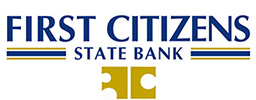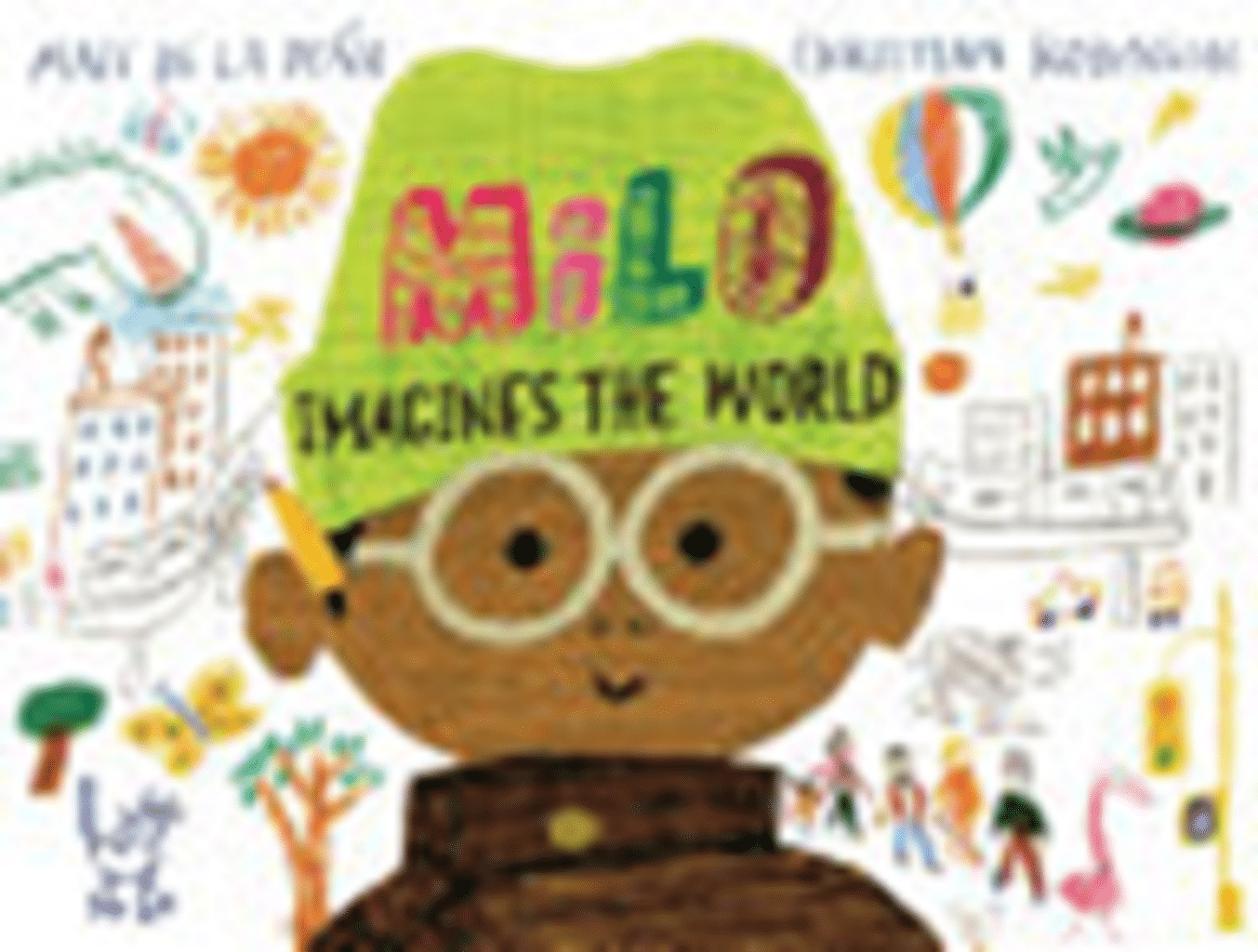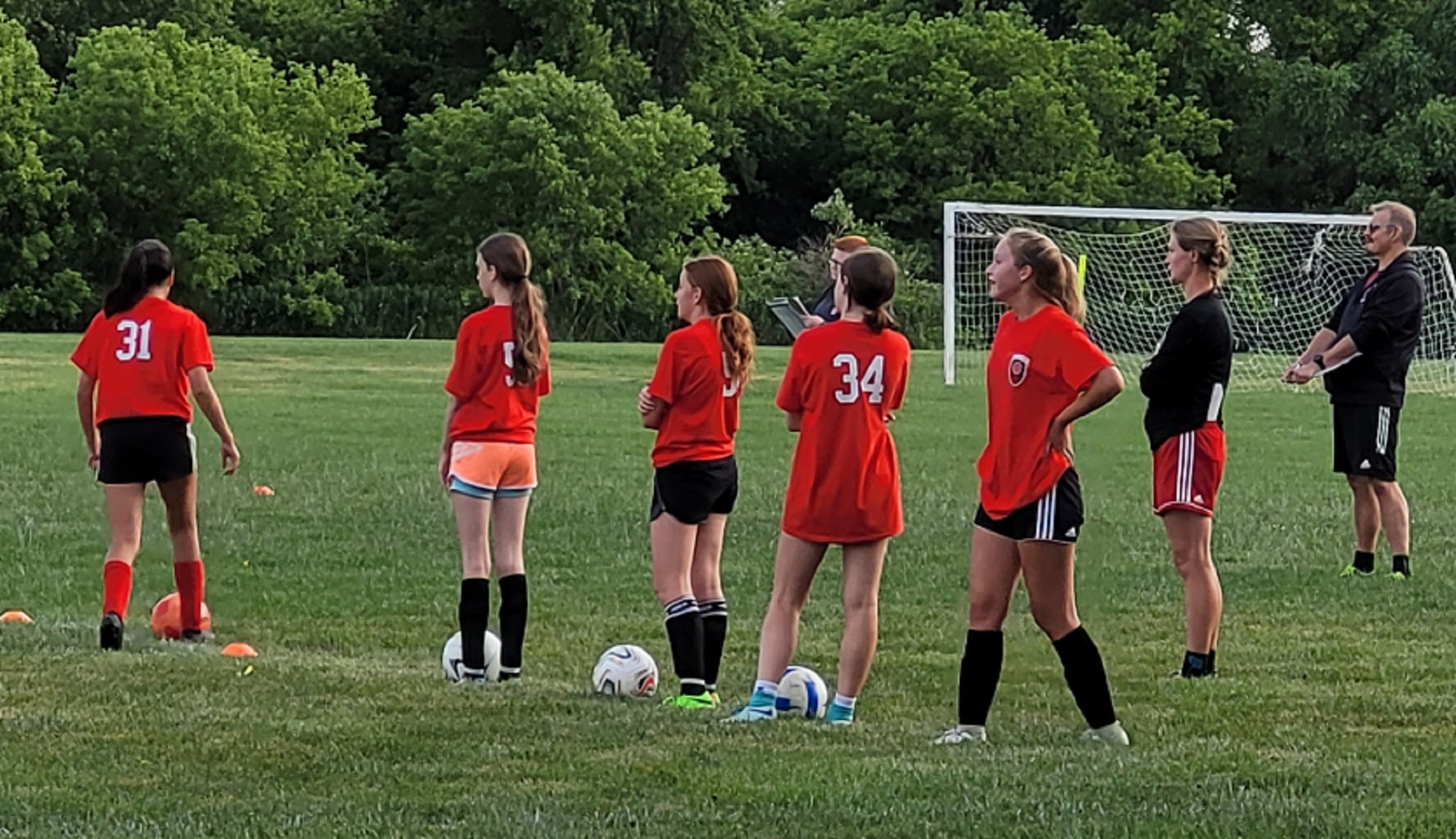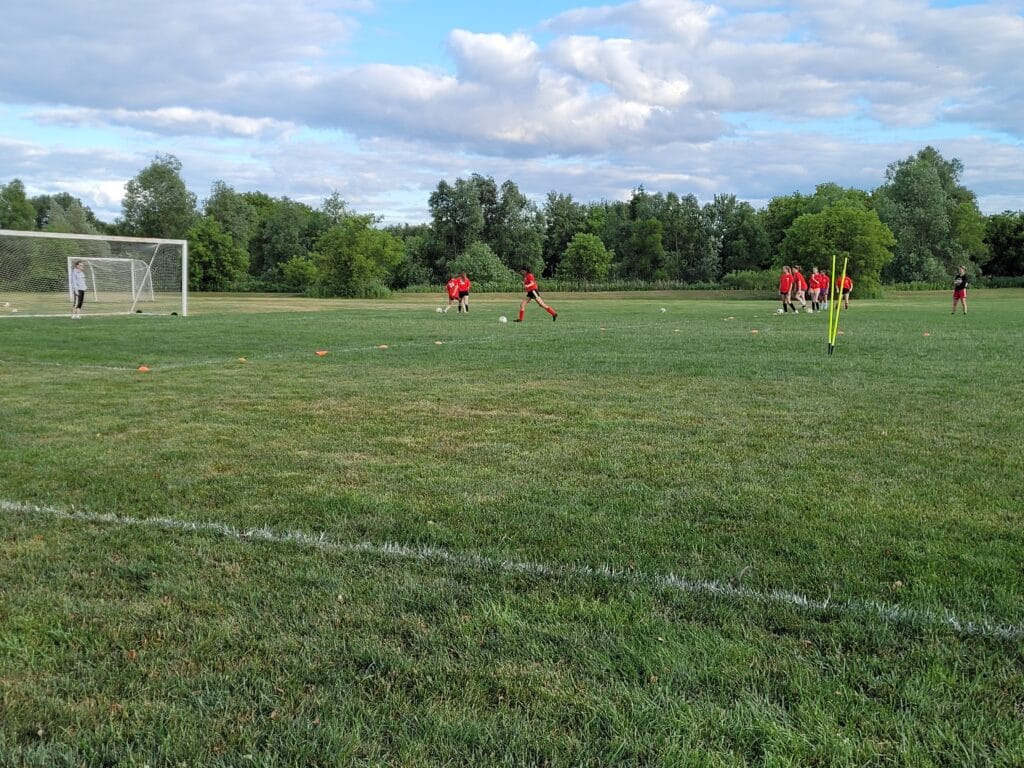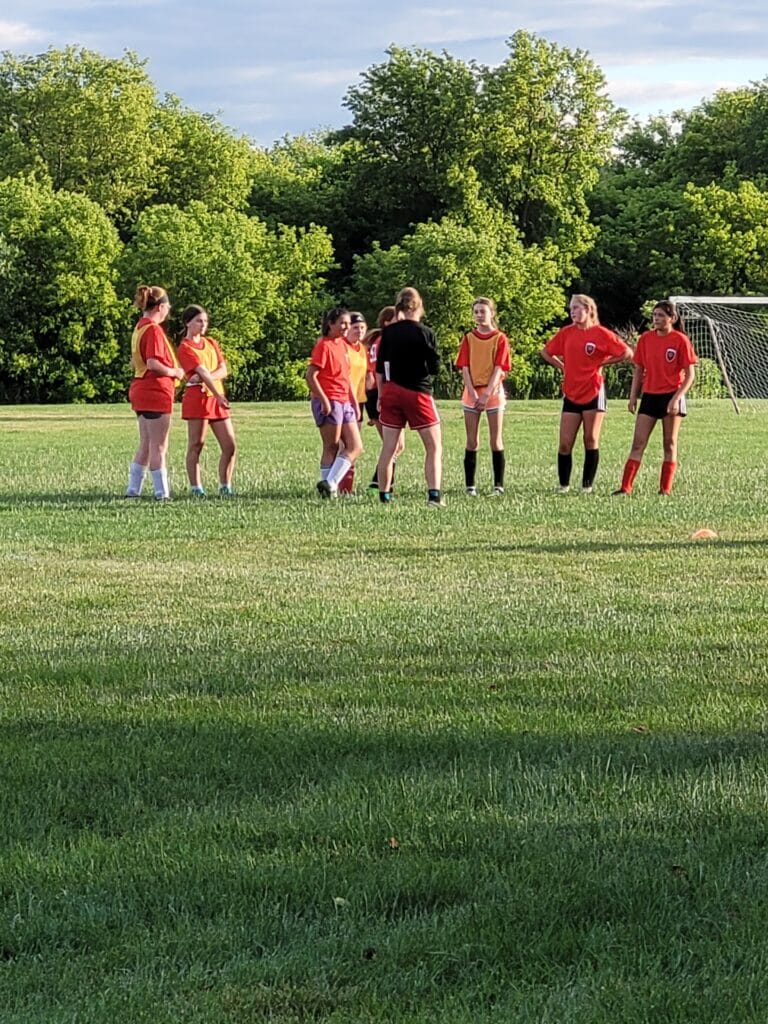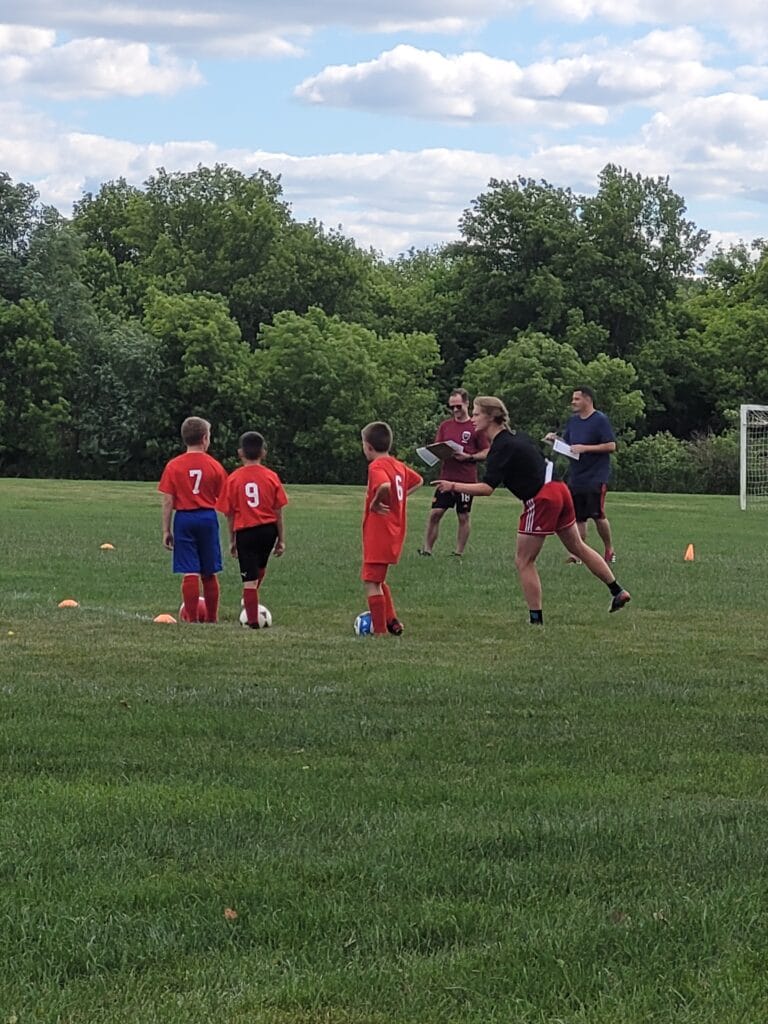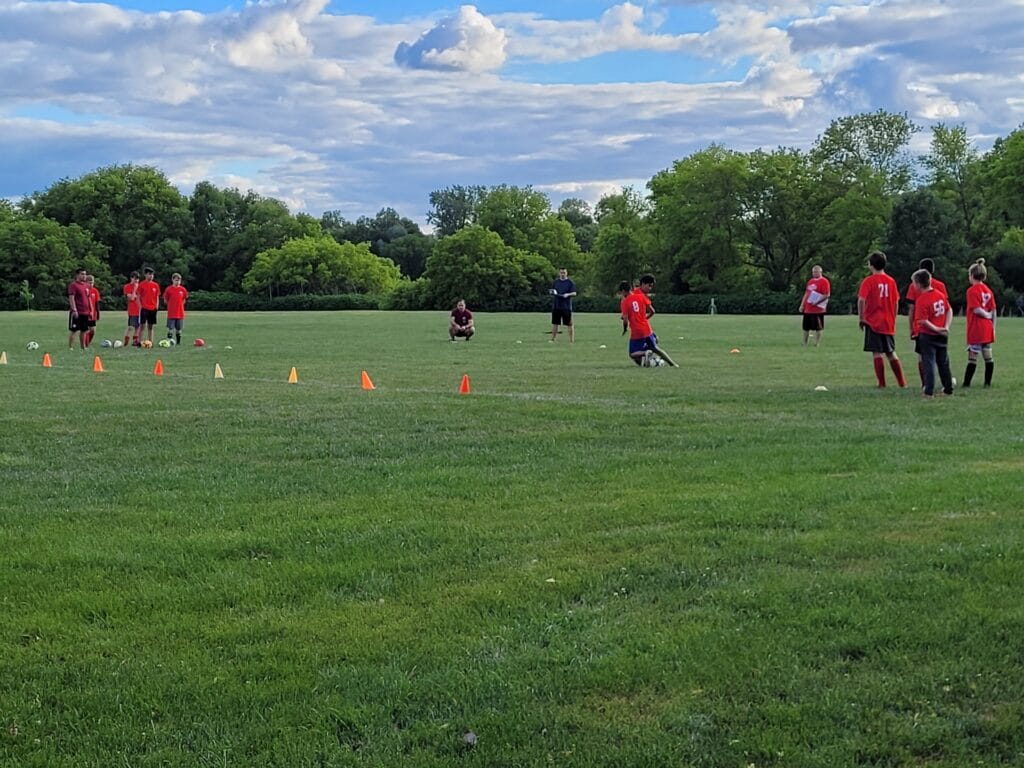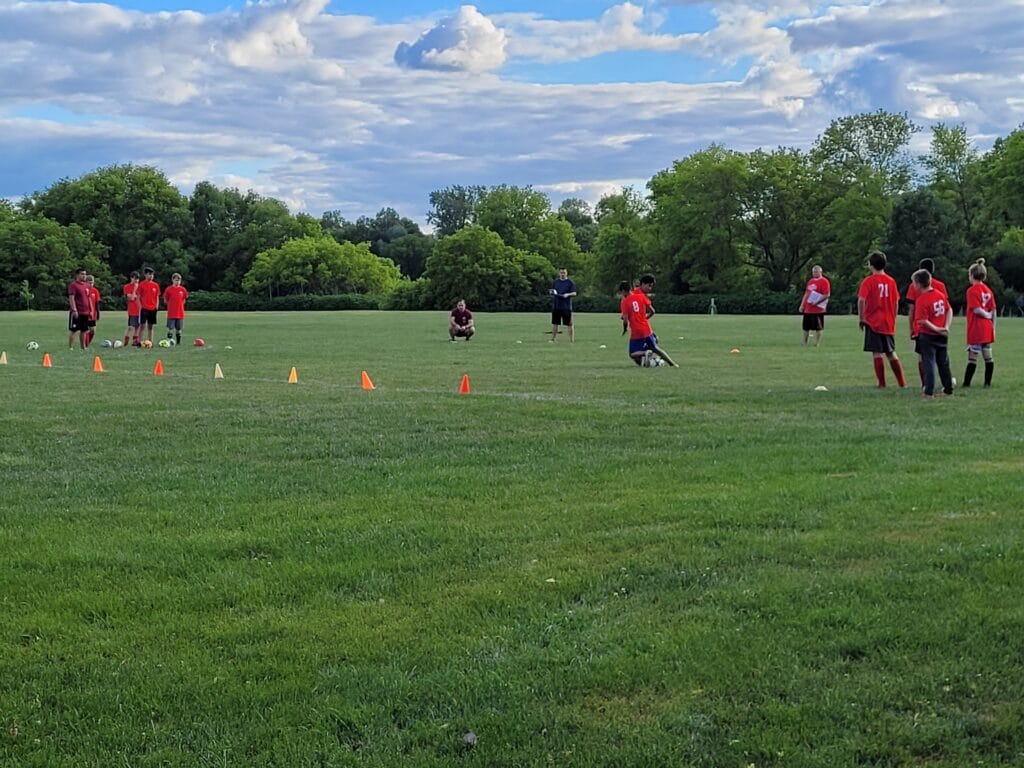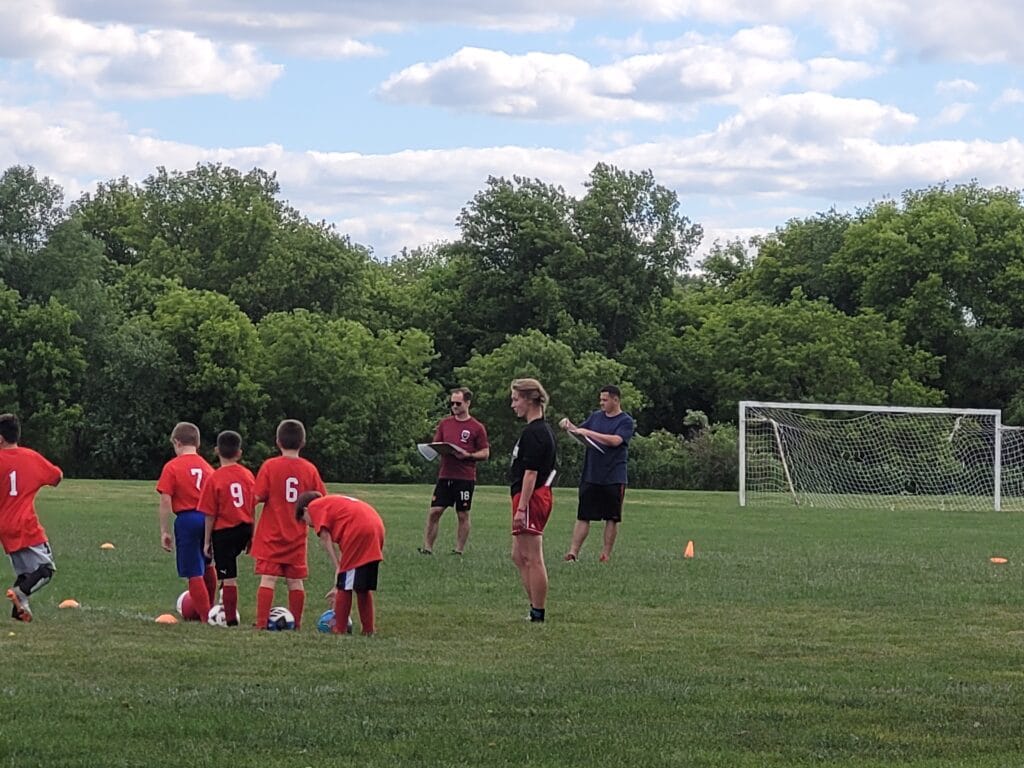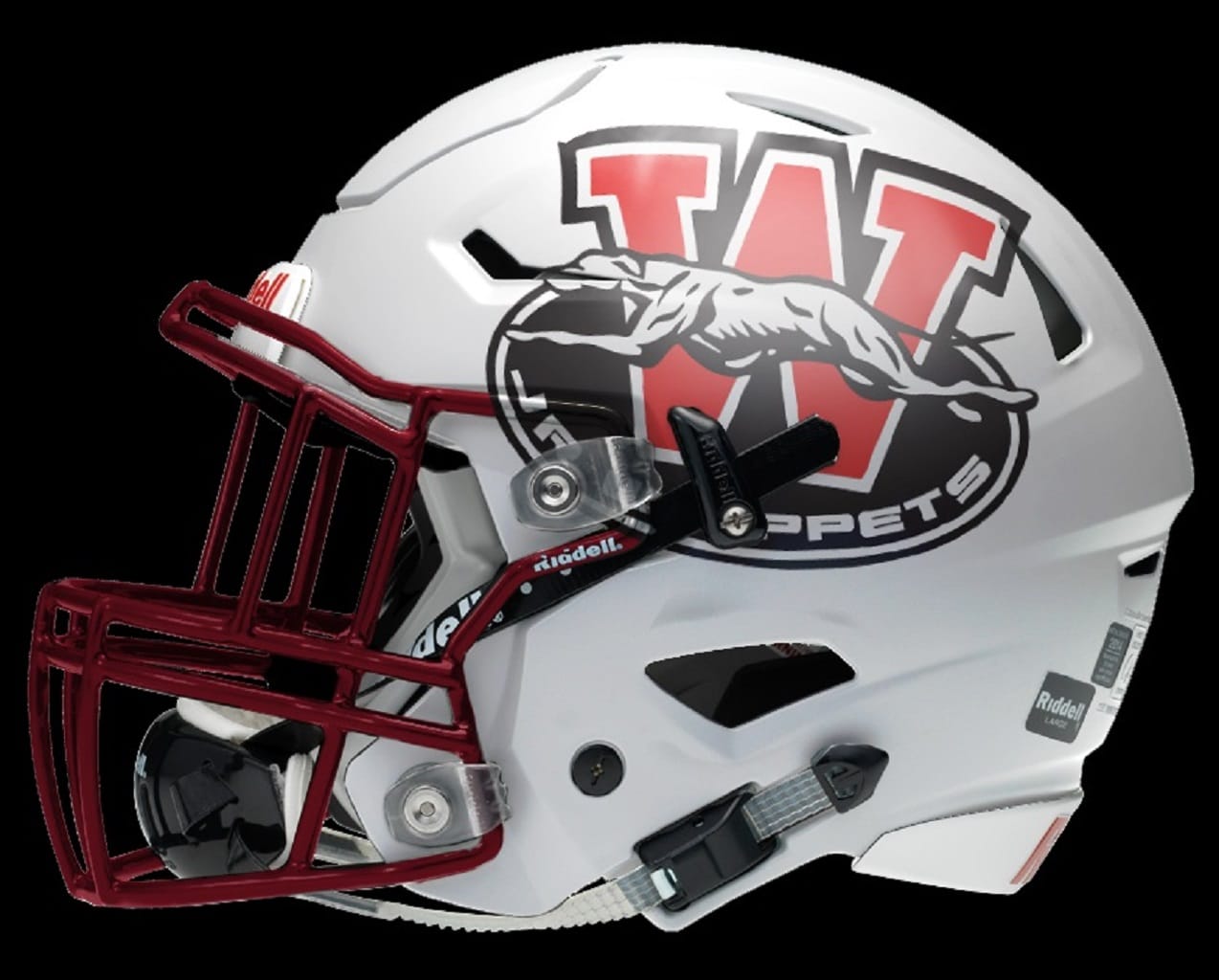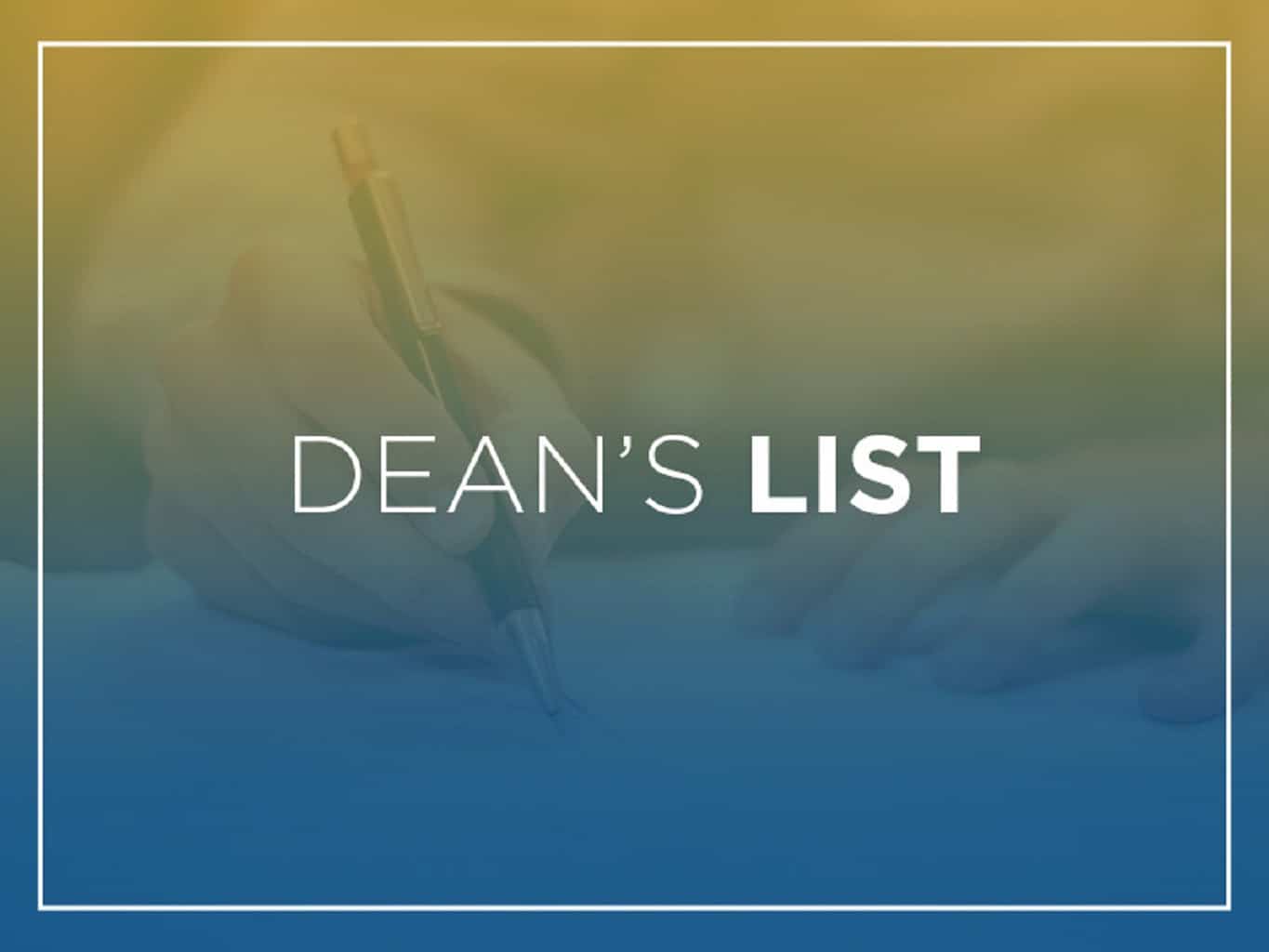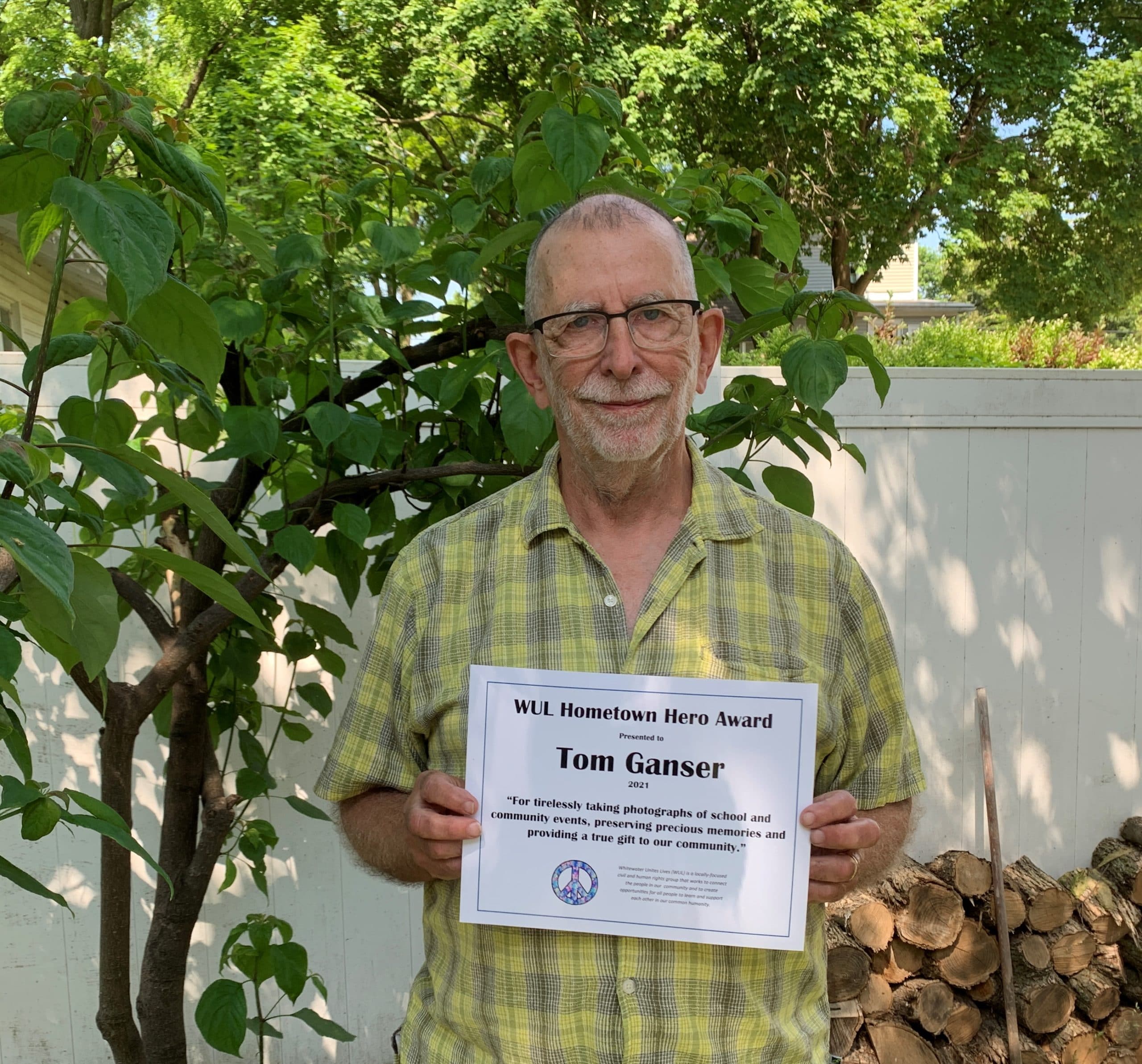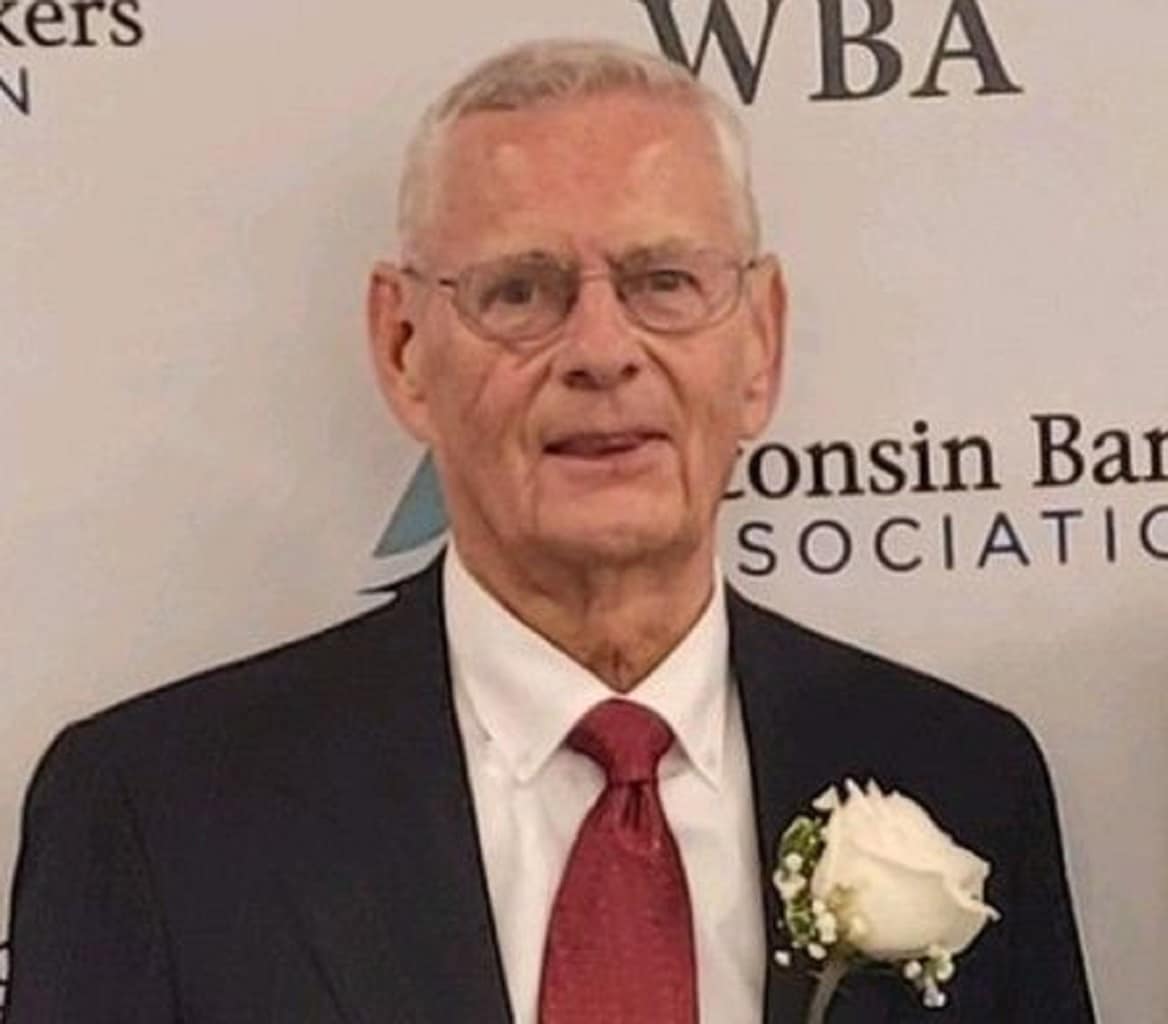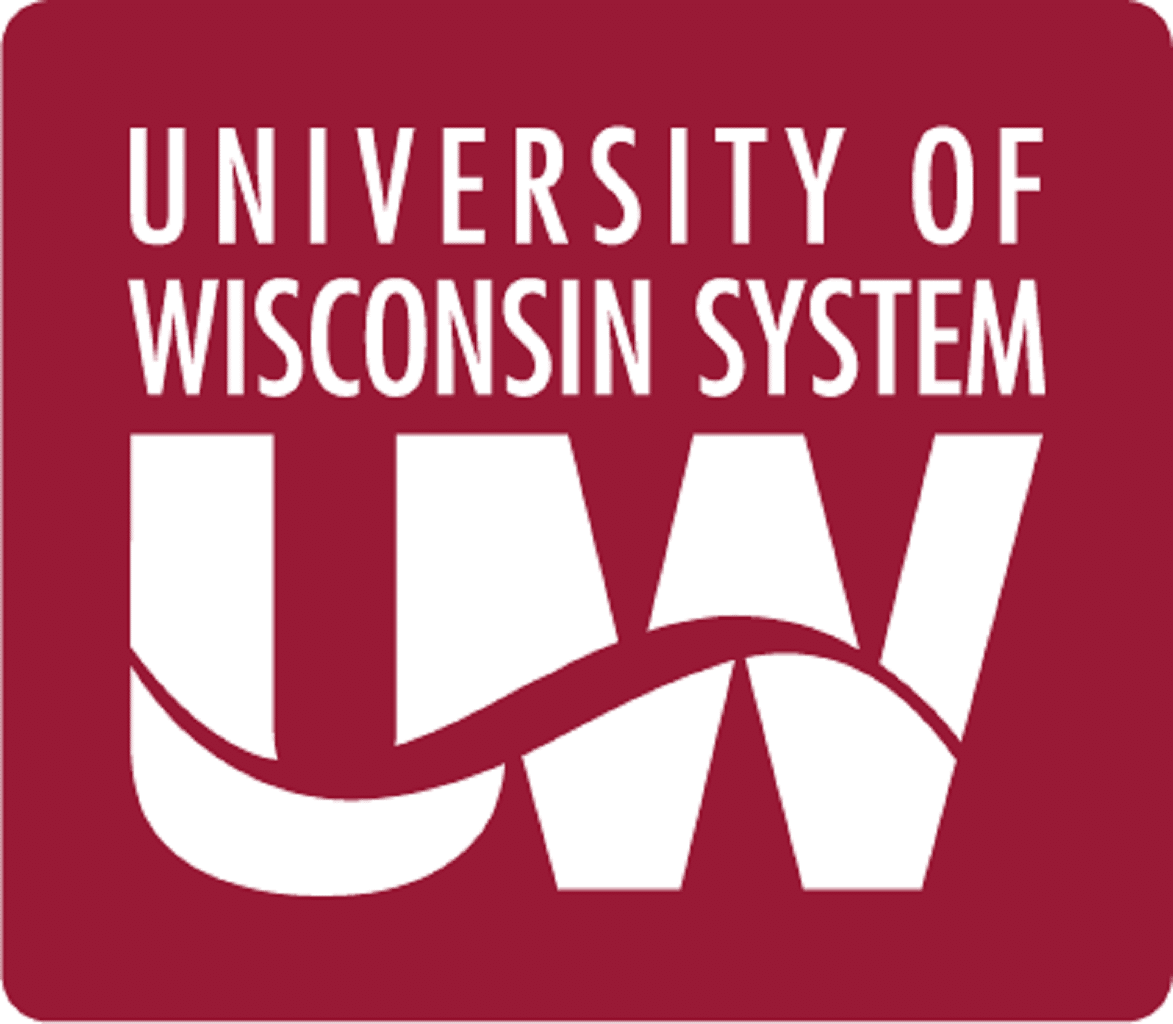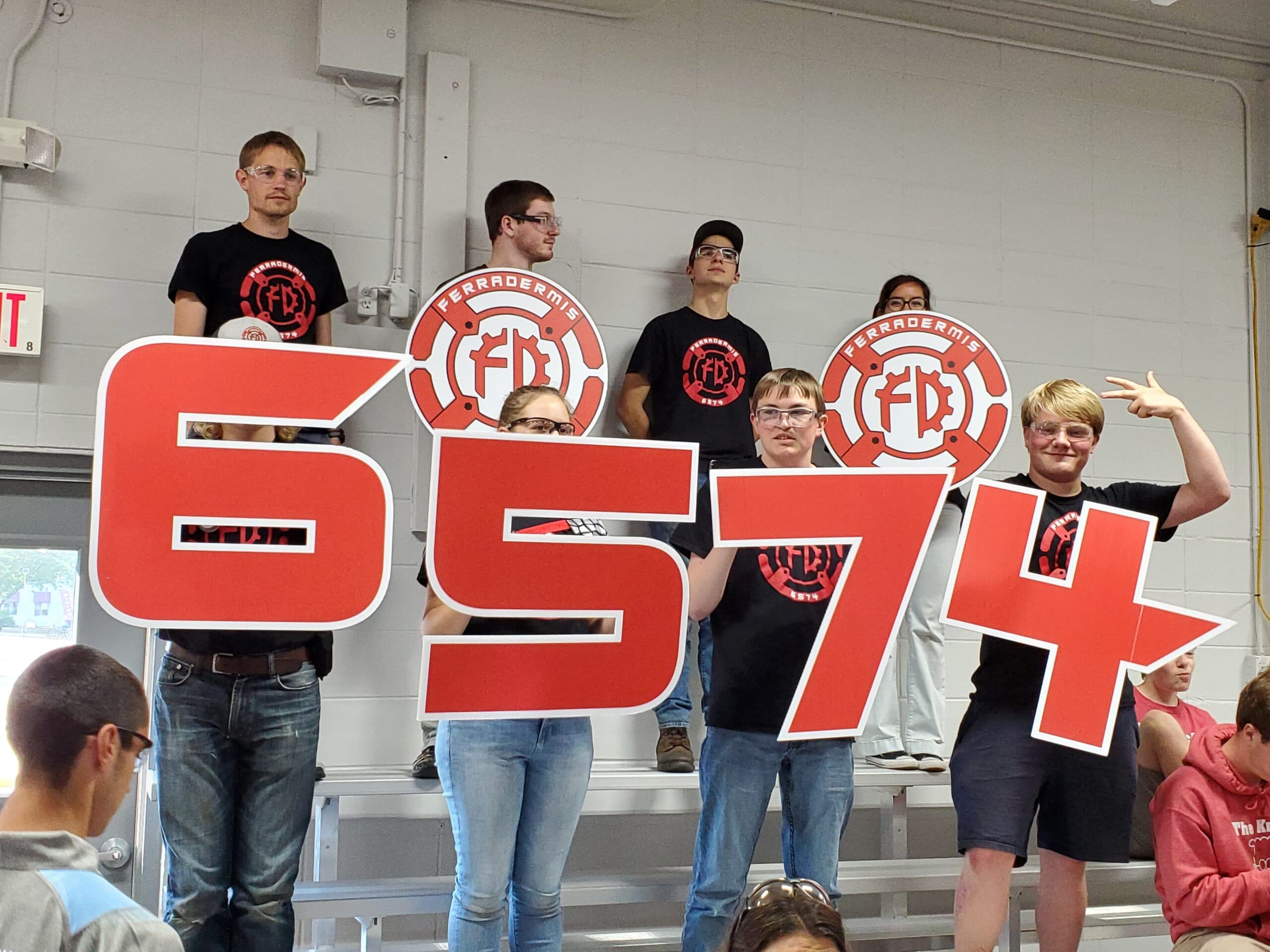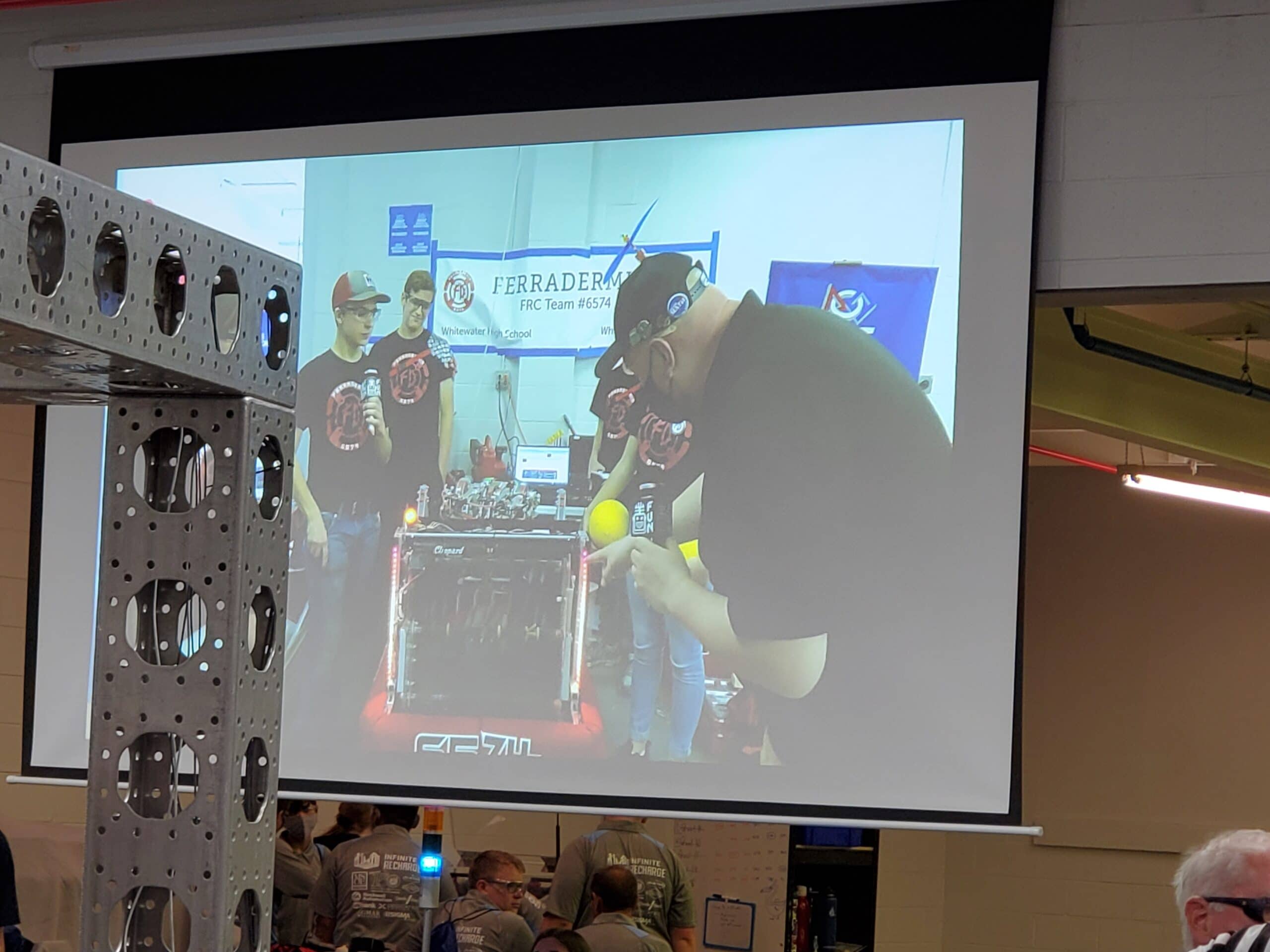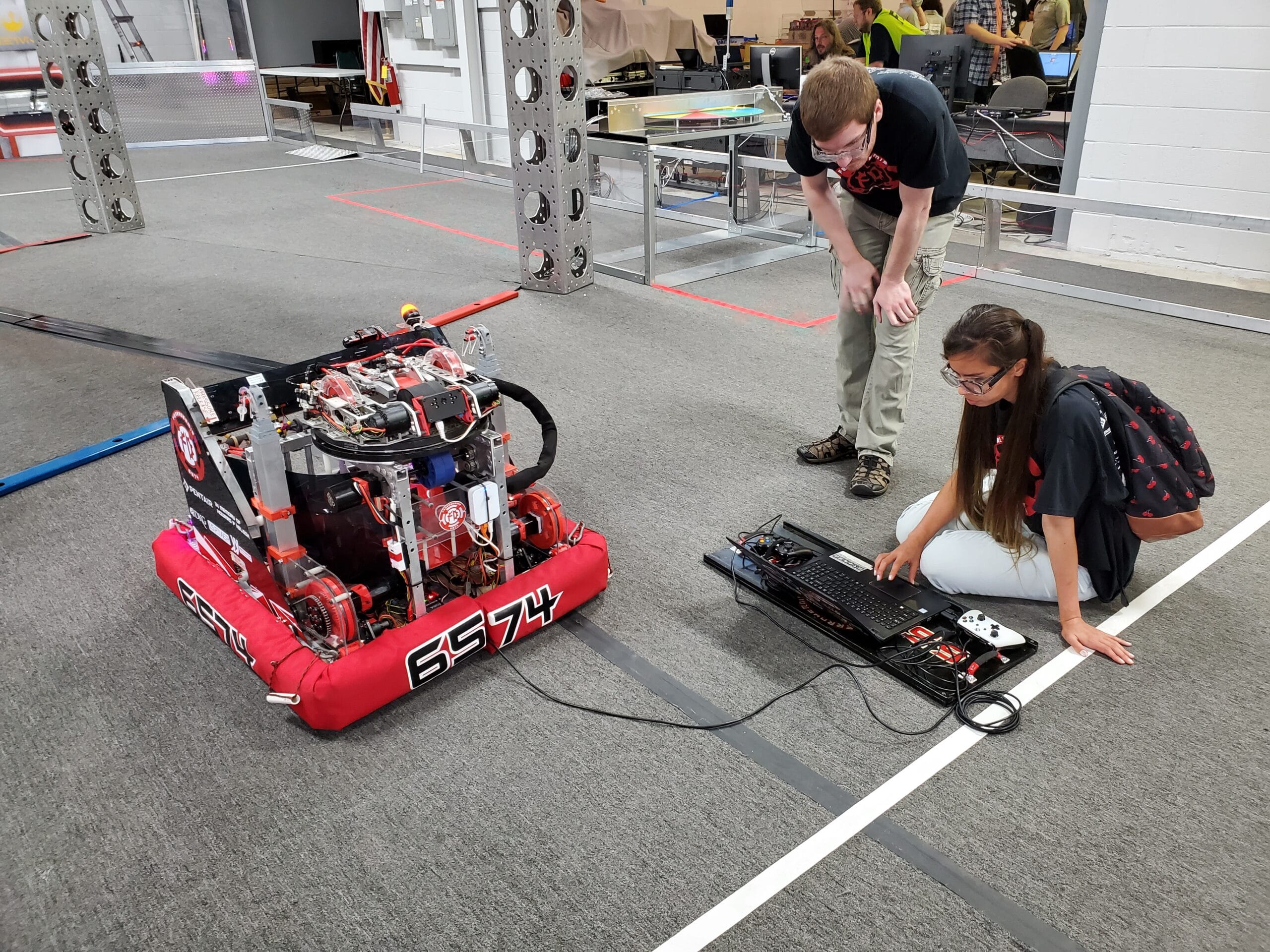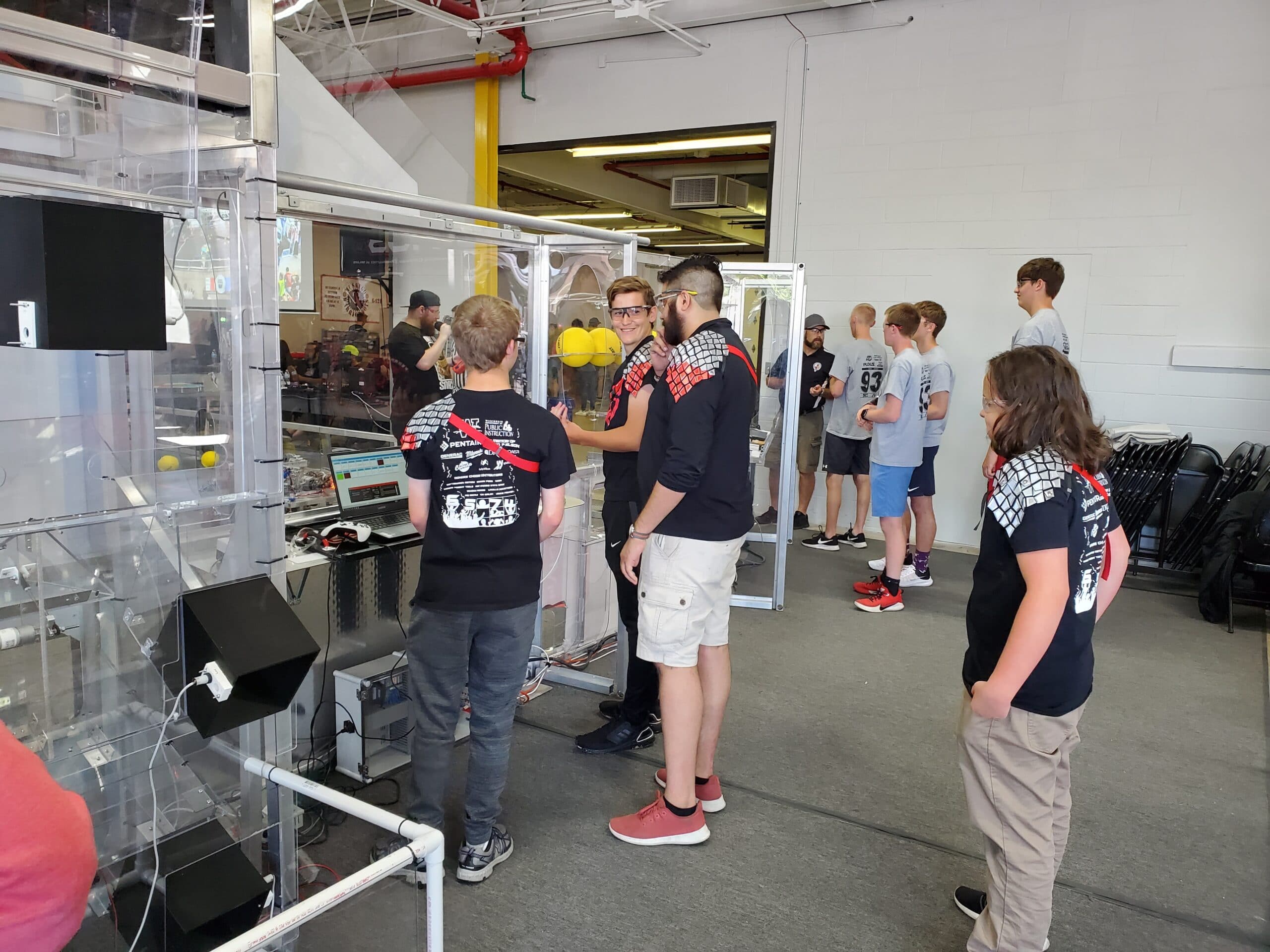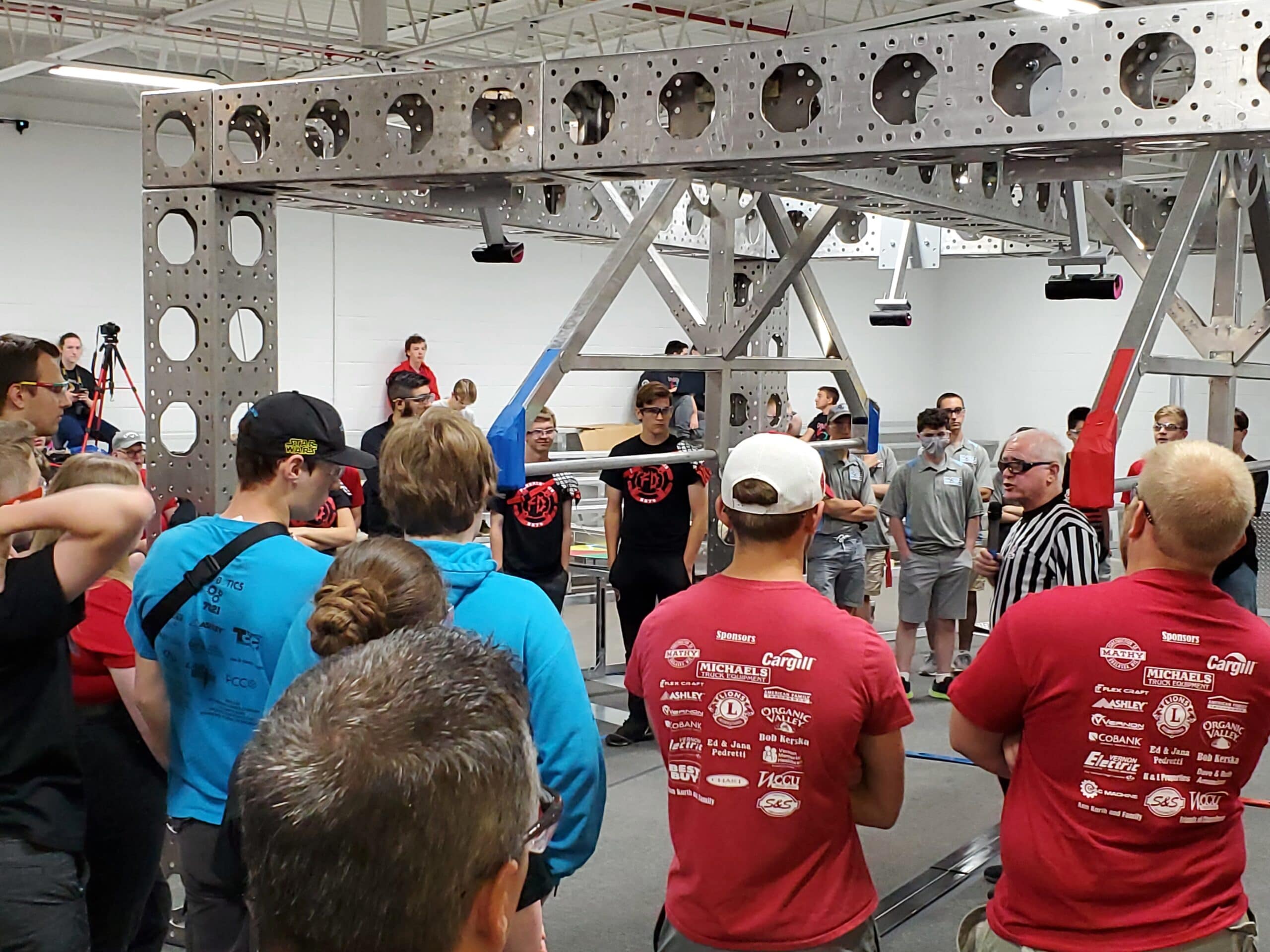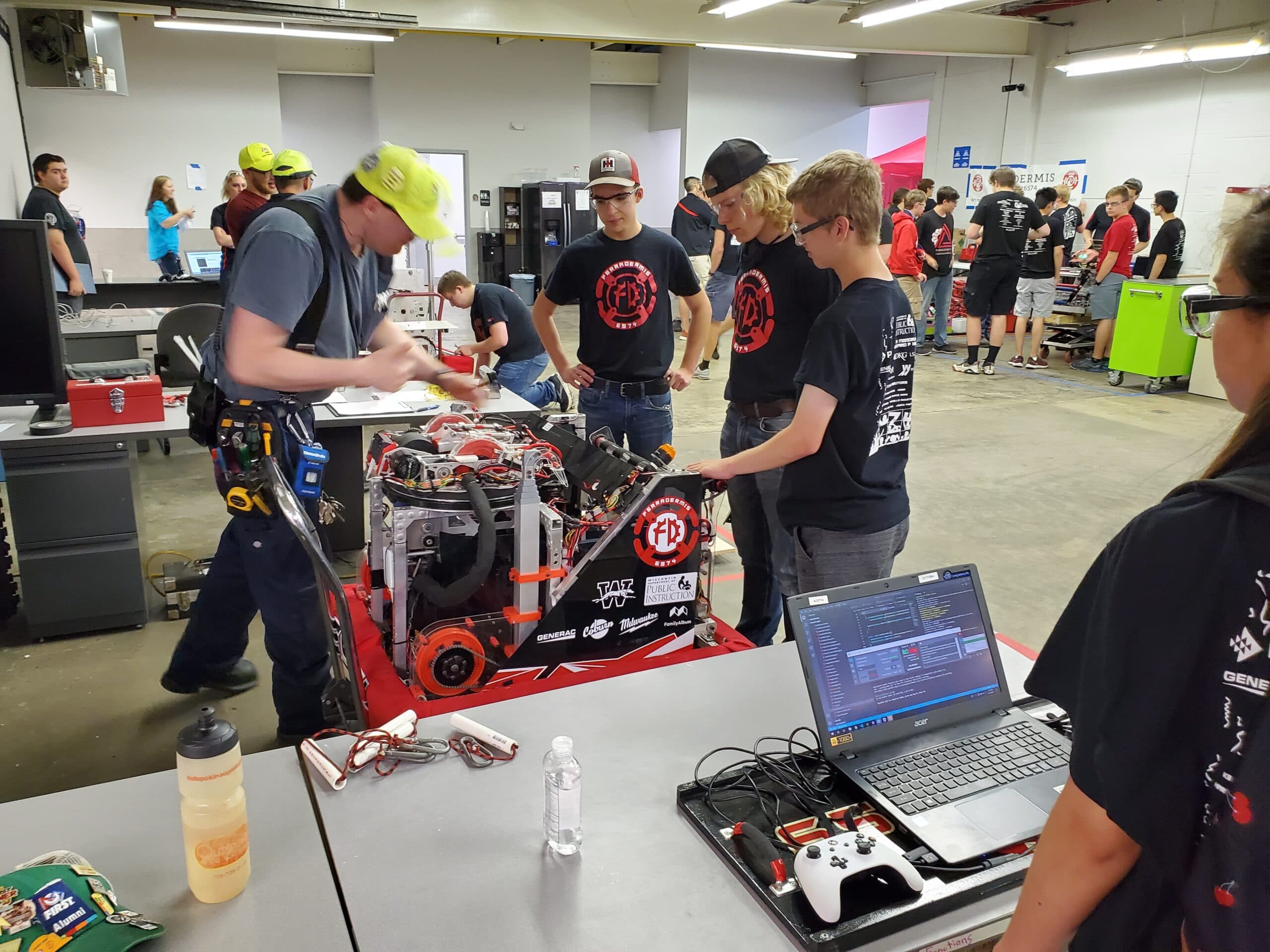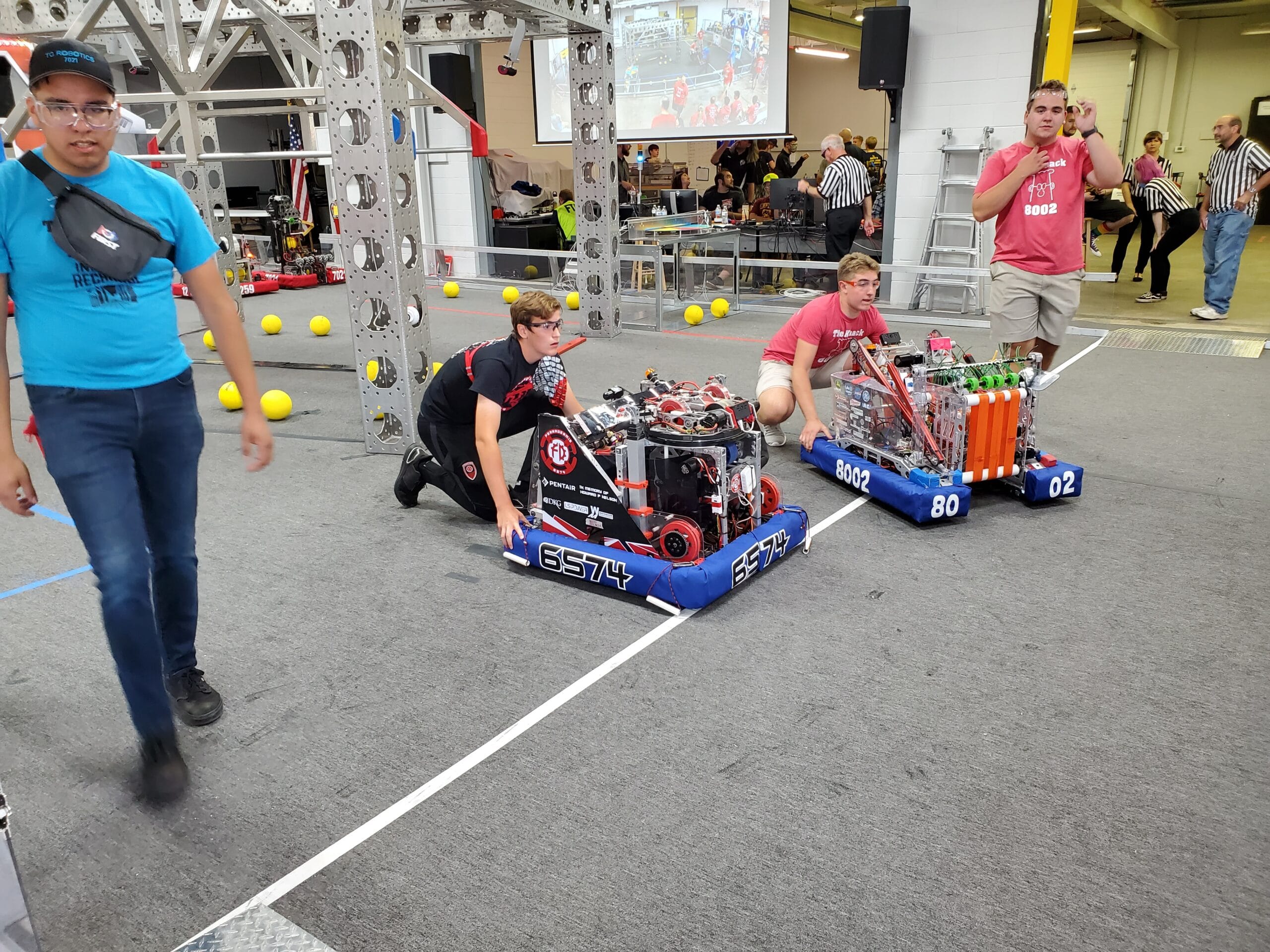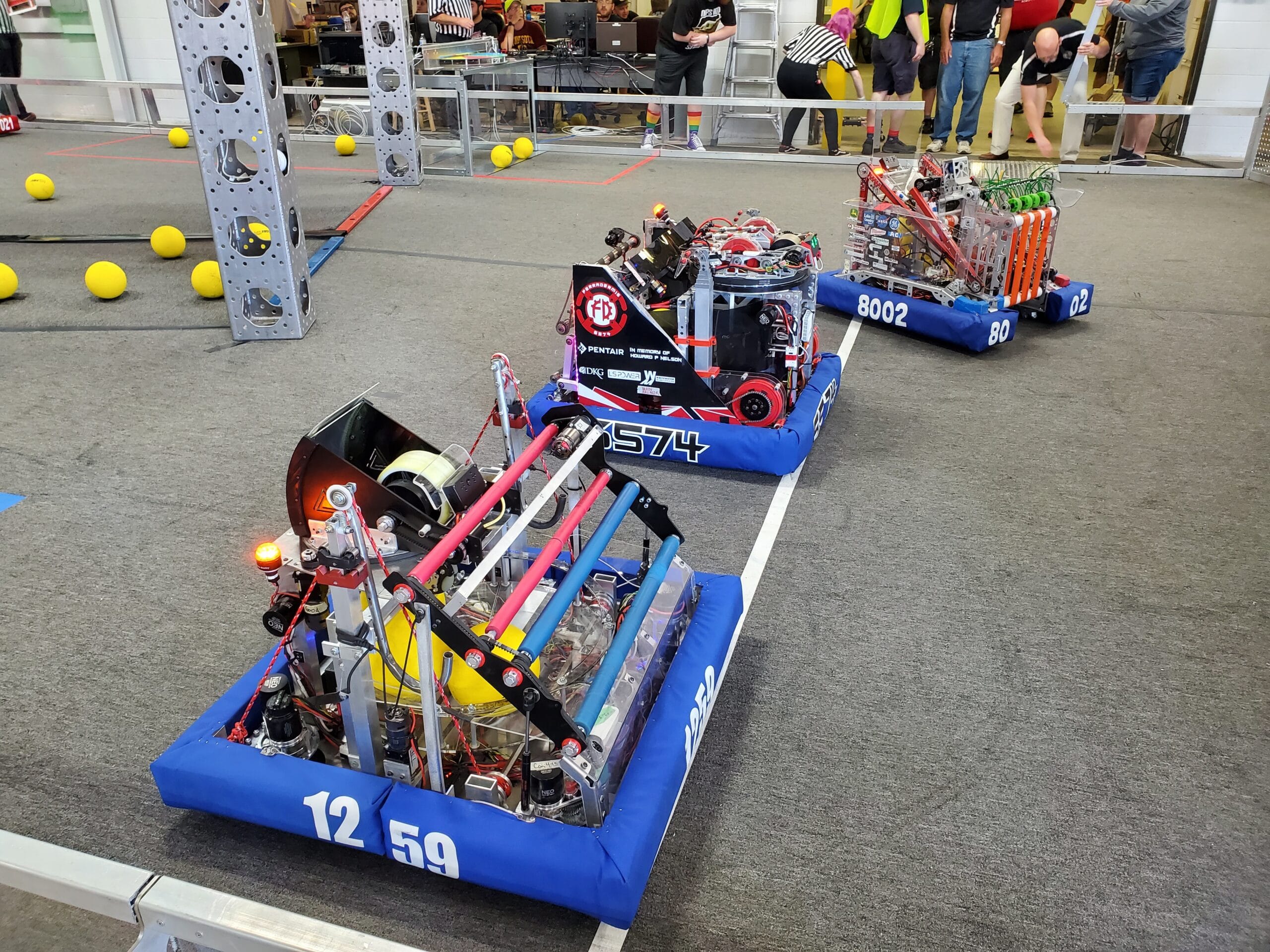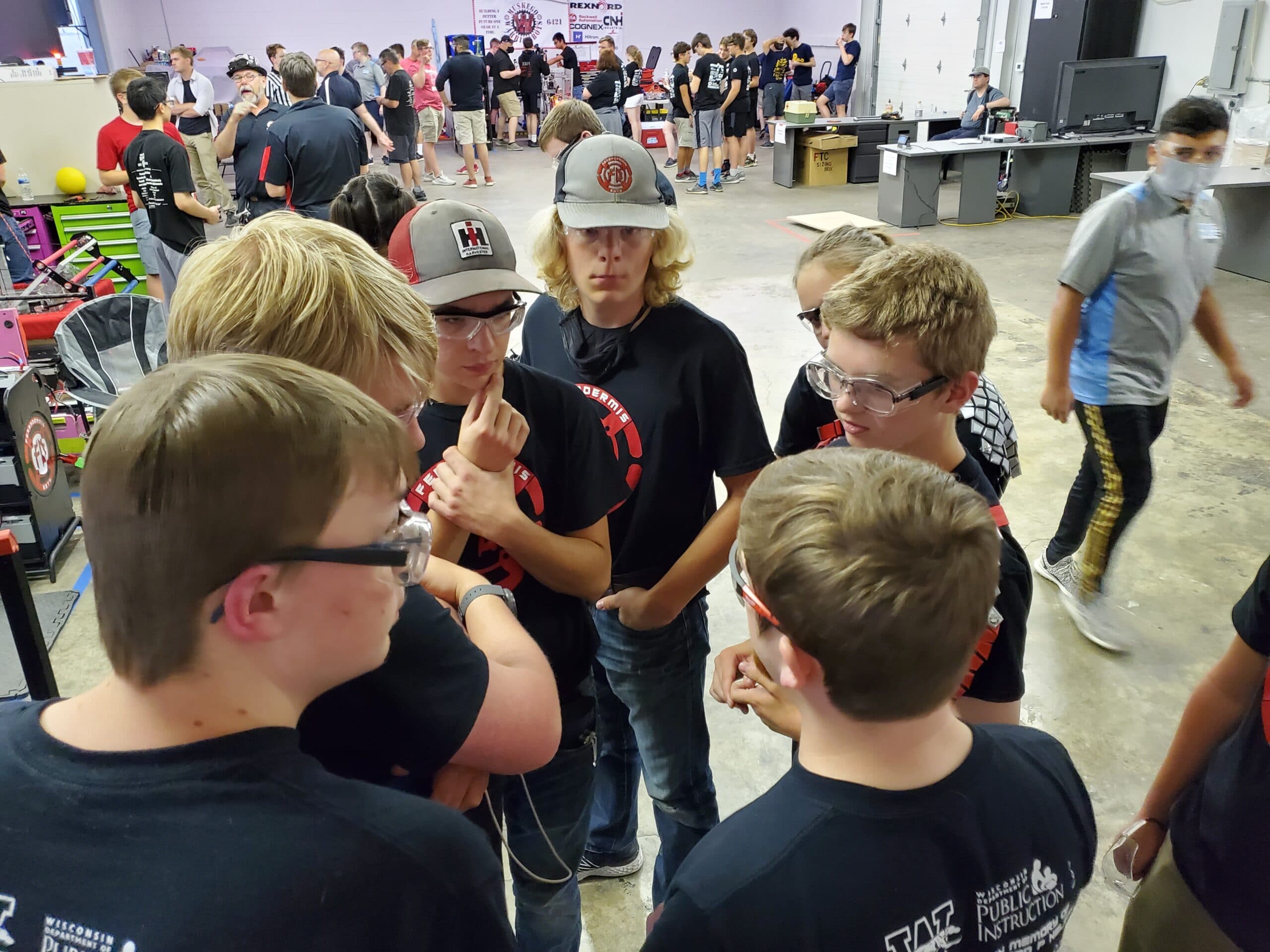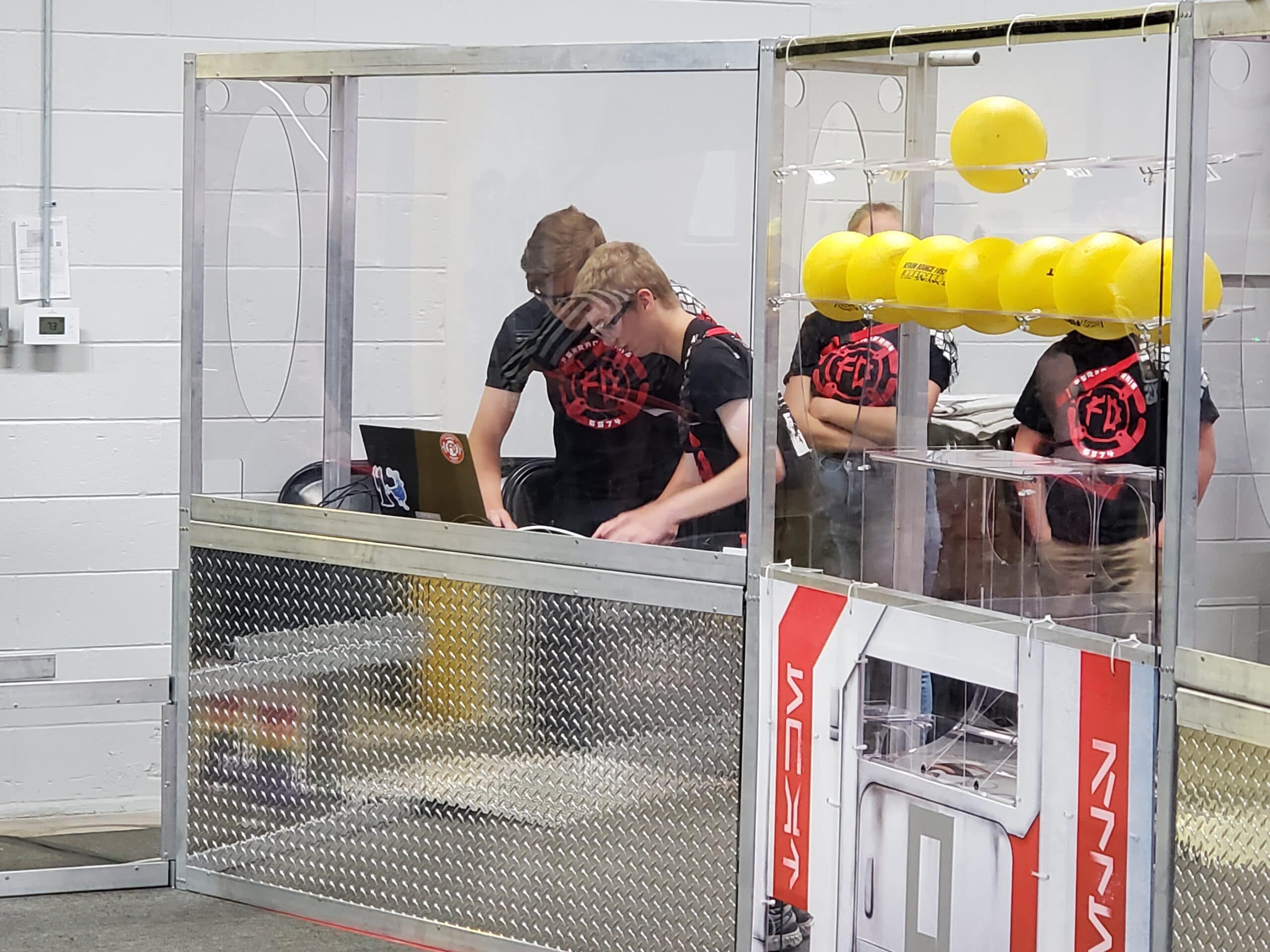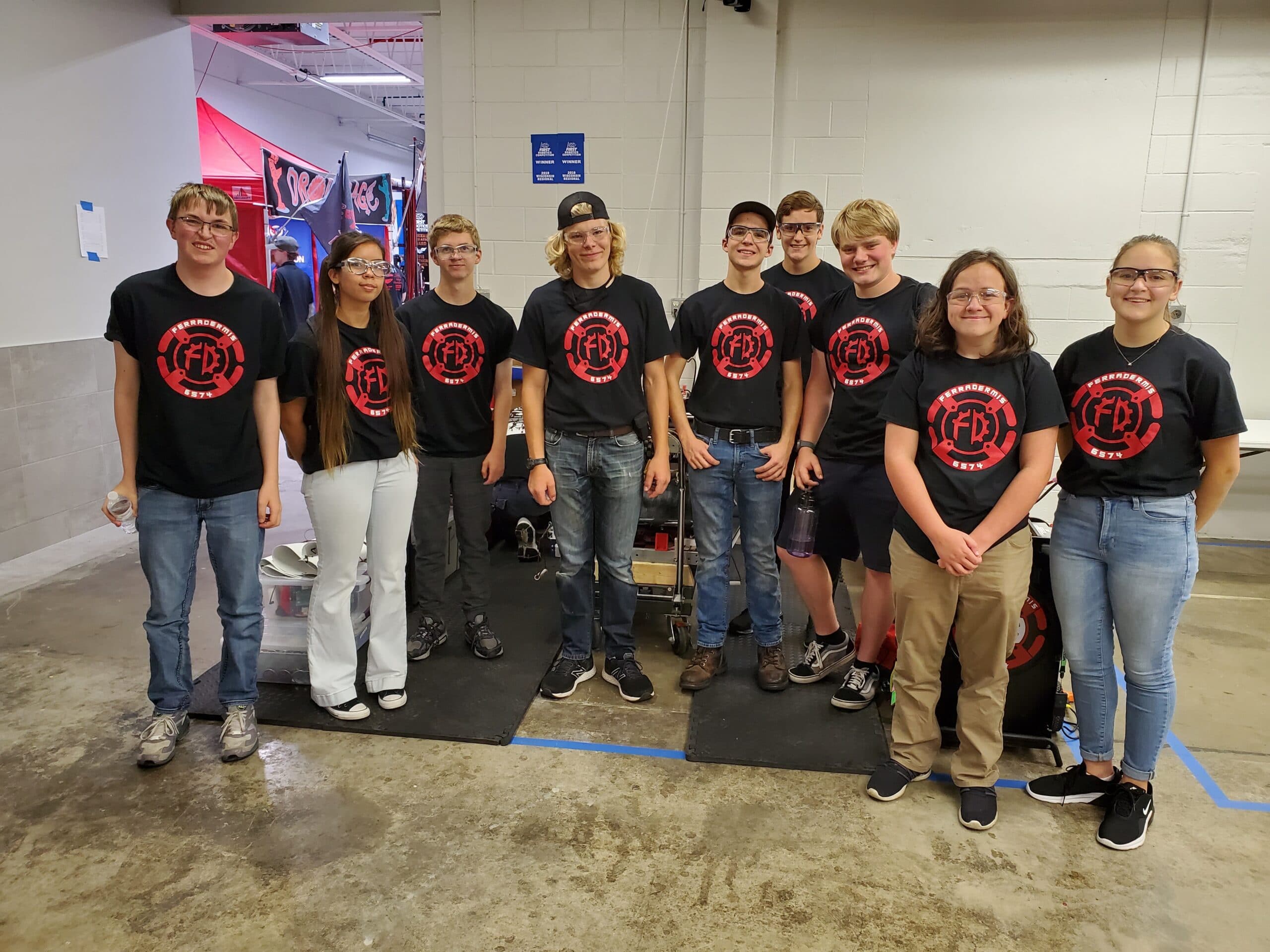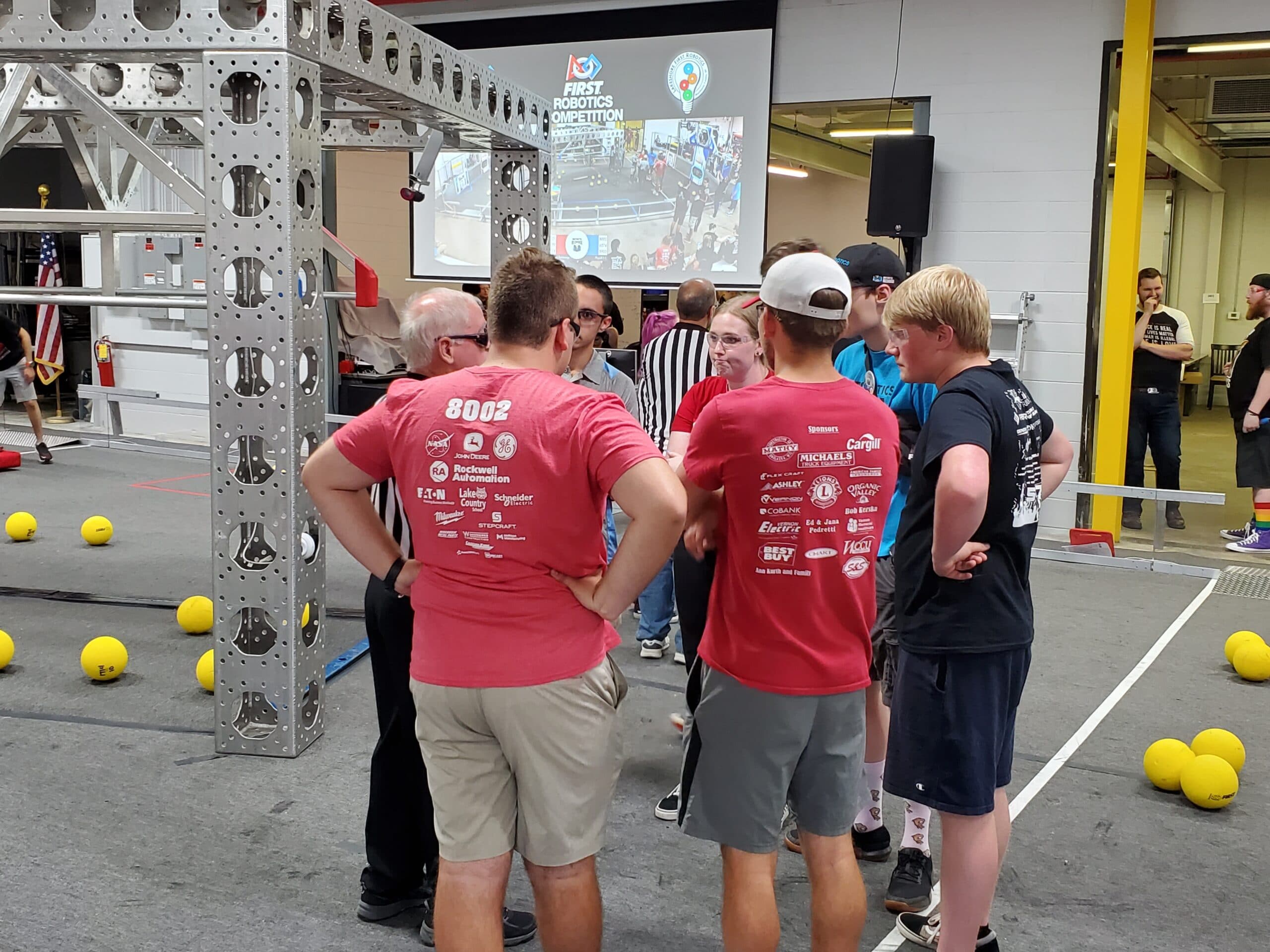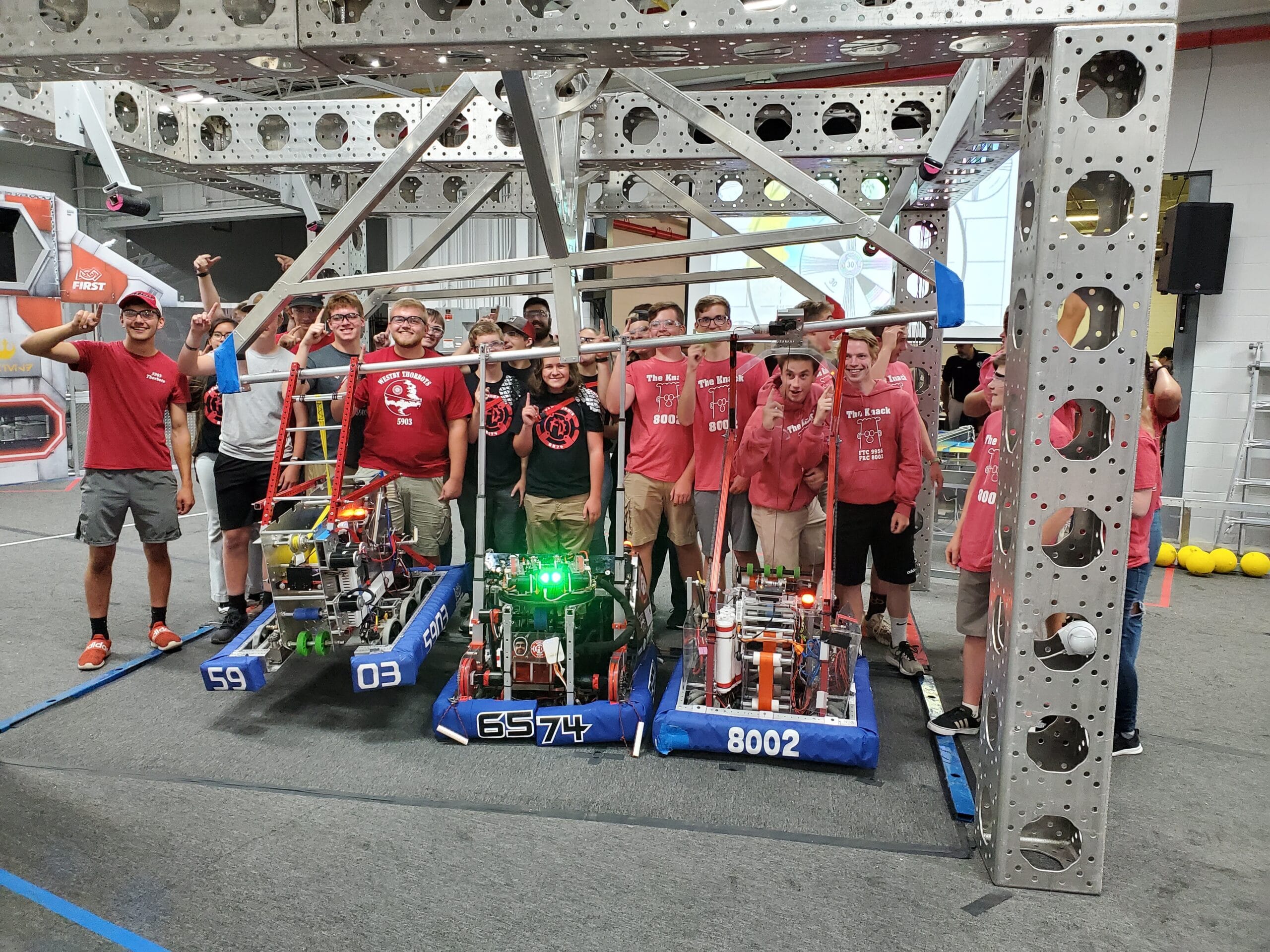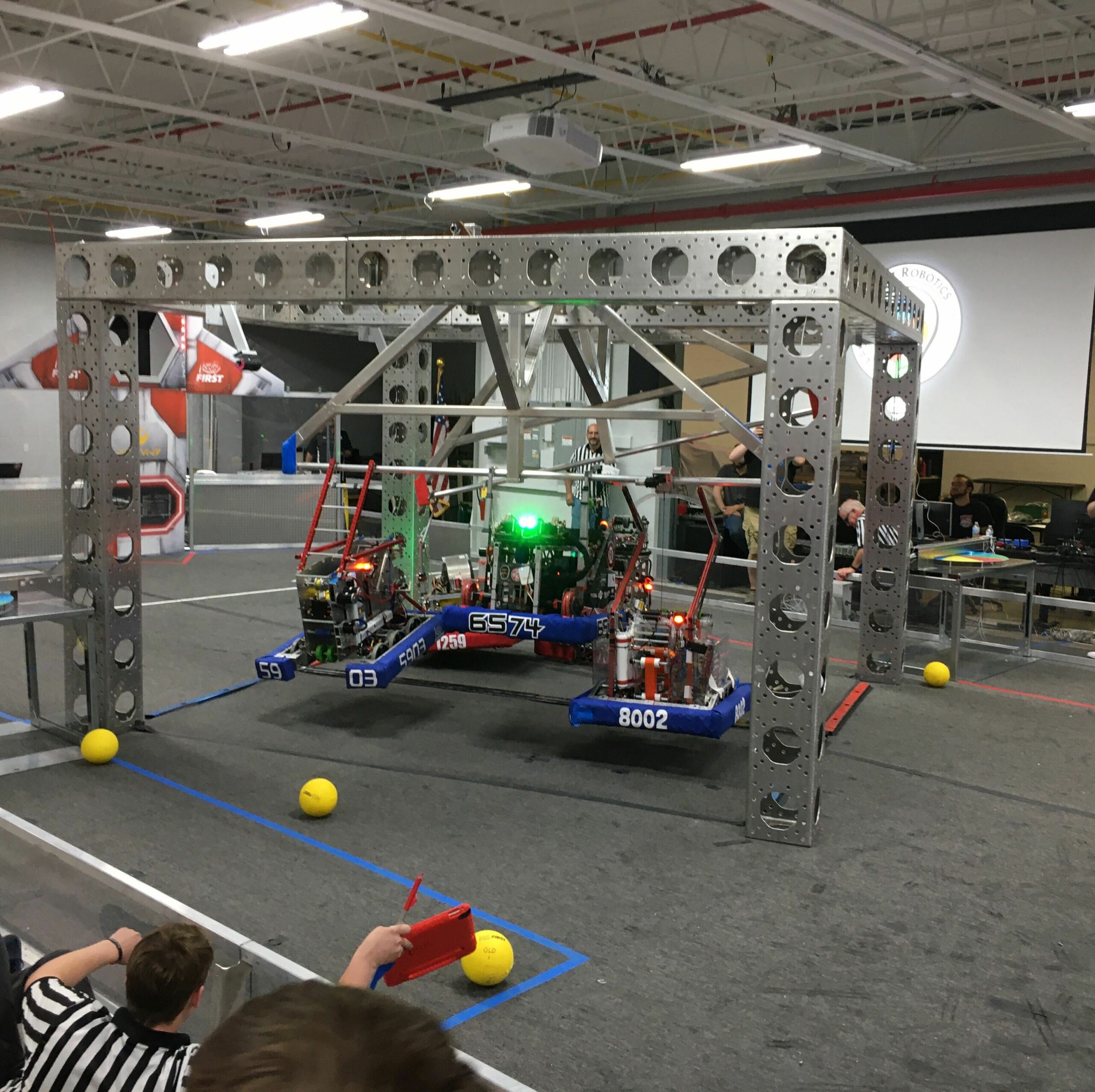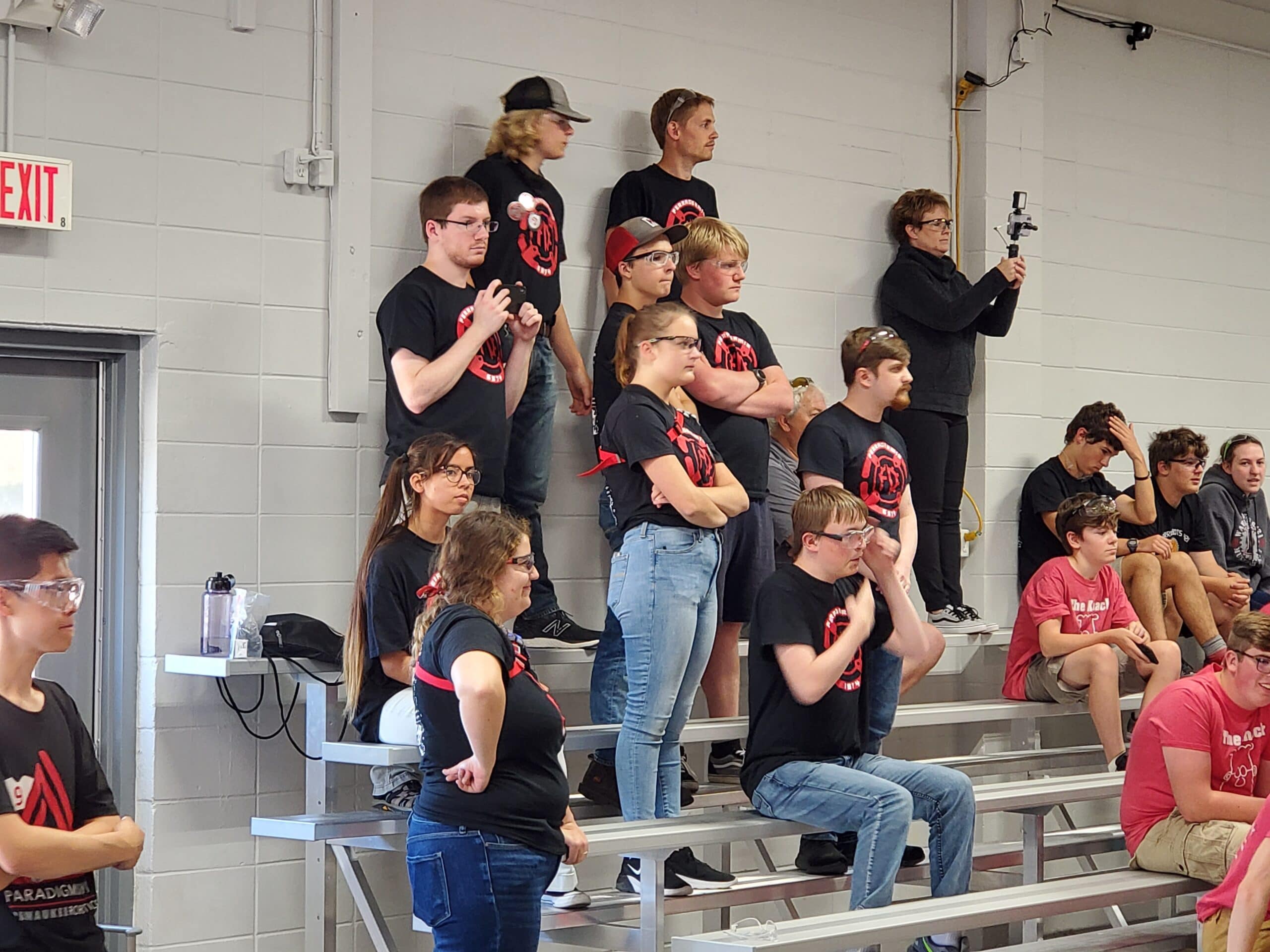Come check out the StoryWalk® at First United Methodist Church in Whitewater. Beginning by the church parking lot at 145 S. Prairie St, you can take a walk around the church building and read a book at the same time. The StoryWalk® will be up all summer and the books will change ever 2-3 weeks; all changes will be announced on the Banner and at the First UMC Facebook Page. The current book is called “Milo Imagines the World” by Matt de la Pena; a great book about a little boy who learns that first impressions of people might not tell their whole story. Contact Beth at 262-473-2131 with any questions.
News
Whitewater United FC Select Soccer: Still time for girls/boys U12-U15 tryouts
Whitewater United FC Select Soccer held a successful first day of tryouts.
If your player is interested in being a part of a Whitewater U12-U15 Select team there is still time!
Tryout dates will continue Thurs., June 24th, Tues., June 29th, and Wed., June 30th. A one-time cost of $25 tryout fee is due at tryouts at the field (non-refundable).
Times are as follows:
June 24th 4:00 p.m.-5:30 p.m. U12 Boys/Girls
6:00 p.m.-7:30 p.m. U15 Boys/Girls
June 29th & 30th 4:00 p.m.-5:30 p.m. U15 Boys/Girls
6:00 p.m.-7:30 p.m. U12 Boys/Girls
Tryout Location: Moraine View Park Fields, 1201 E. Innovation Drive. Arrive 15 minutes early for check-in.
UWW Sustainability Collecting Many Types of Plastics for Recycling to Earn a Sustainably Made Bench
See below for the many types of plastic that may be recycled through this UWW Sustainability project. A collection box is located at the Discover Whitewater office, 150 W. Main Street. The office is generally open Monday through Friday from 9 a.m. to 5 p.m.
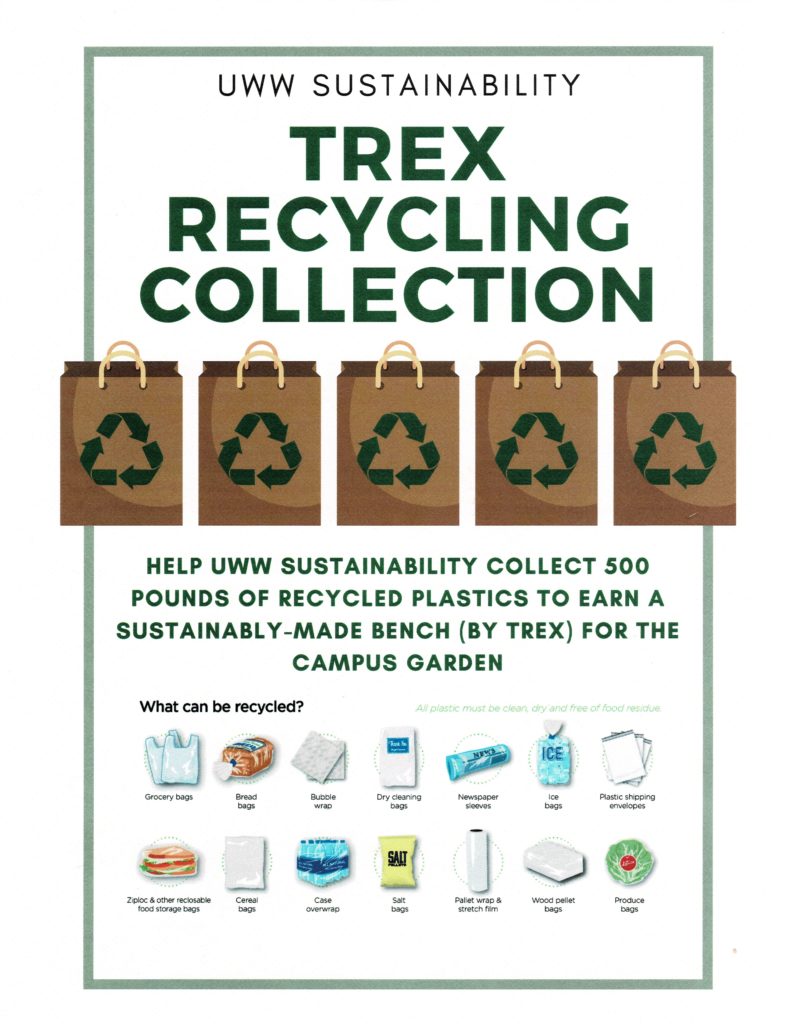
The image on the homepage, “Sepia Grunge Sign – Recycling Symbol” by Free Grunge Textures – www.freestock.ca is licensed under CC BY 2.0
Whitewater Youth Football Registration Deadline Extended to June 30 – More Players Needed
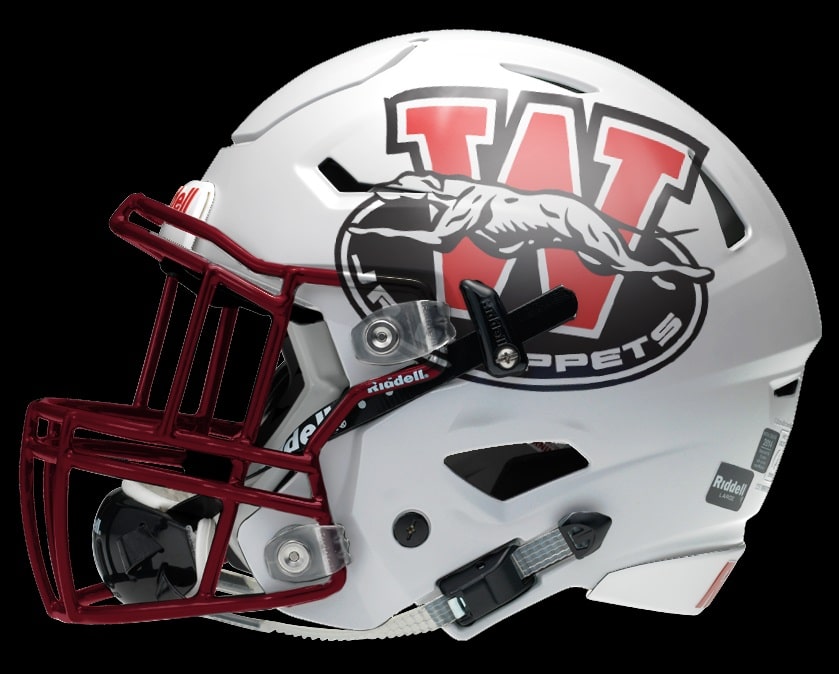
Whitewater Youth Football League is seeking final registrations for 2021-2022 grades 4th – 8th for hybrid and tackle football teams. The EXTENDED REGISTRATION DEADLINE is June 30. Parents can register their players for 4th/5th grade HYBRID team (8 on 8 padded flag football) and 6th, 7th, and 8th grade tackle football. Practice is set to begin in August, with Saturday games in September and October. You can register your player through the Whitewater Park & Recreation website under the Programs/Team Sports page. Any questions, you can contact Neal Kolb by email at wildlifepreservation@hotmail.com
Whitewater Students named to Dean’s Lists at University of Dubuque and University of Wisconsin-Green Bay
Juan Cuellar Meza has been appointed to the Dean’s List at The University of Dubuque, and Naomi Allen, of the College of Nursing and Health Sciences, has been named to the Dean’s List at the University of Wisconsin-Green Bay.
Special iPad Donation to Help Infusion Center Patients in Fort Atkinson
(SSM Health Dean Medical Group submission) – SSM Health Dean Medical Group – Fort Atkinson was presented with a very special donation recently. Shelley Schaitel, a member of the Jefferson County Cancer Coalition, presented clinic caregivers with two iPads that may be utilized by patients who are receiving care in the infusion center.
“This wonderful donation will help provide additional entertainment and comfort during treatment,” said Dean Medical Group – Fort Atkinson Clinic Manager Lynn Grover. “We couldn’t be more pleased to receive this gift and would like to say thank you to all involved.”
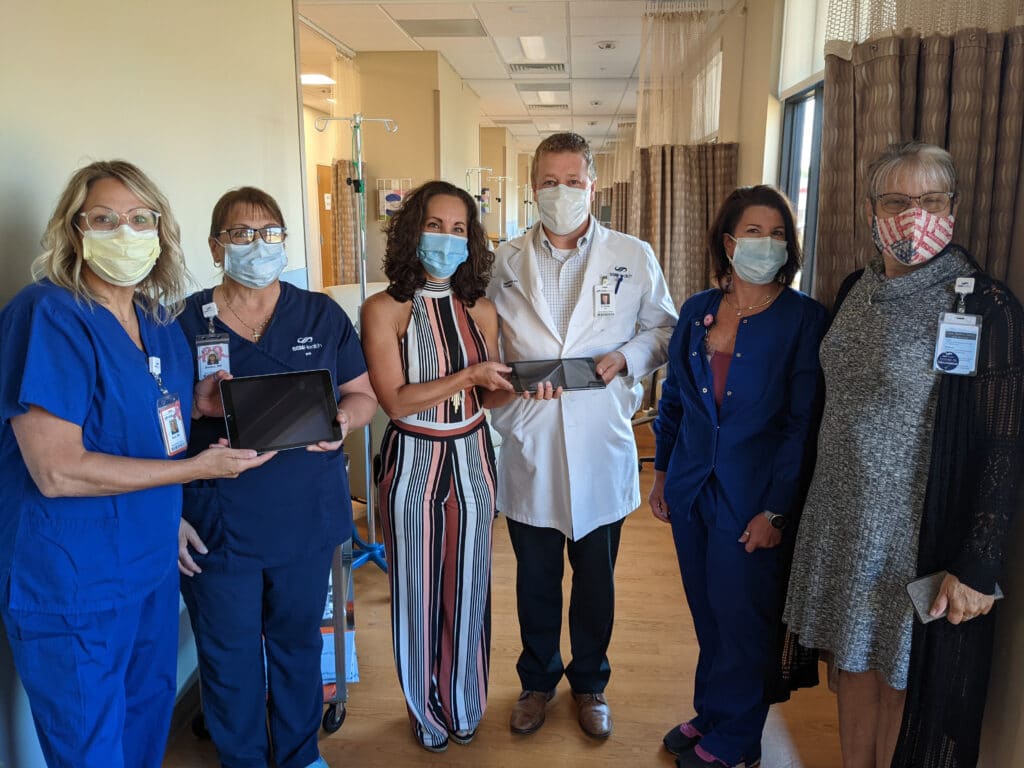
About SSM Health Dean Medical Group
SSM Health is a Catholic, not-for-profit health system serving the comprehensive health needs of communities across the Midwest through one of the largest integrated delivery systems in the nation.
SSM Health Dean Medical Group was established in 1904. It joined the SSM Health system in 2013, and now includes more than 800 primary care physicians, specialty care physicians, and advanced practice clinicians. They serve patients at over 60 locations, including several SSM Health Davis Duehr Dean Eye Care facilities.
For more information, visit www.ssmhealth.com or find us on Facebook and Twitter.
Tom Ganser is a Hometown Hero
(Whitewater Unites Lives submission) Tom Ganser is a WUL Hometown Hero, and has been nominated “For tirelessly taking photographs of school and community events, preserving precious memories and providing a true gift to our community.”
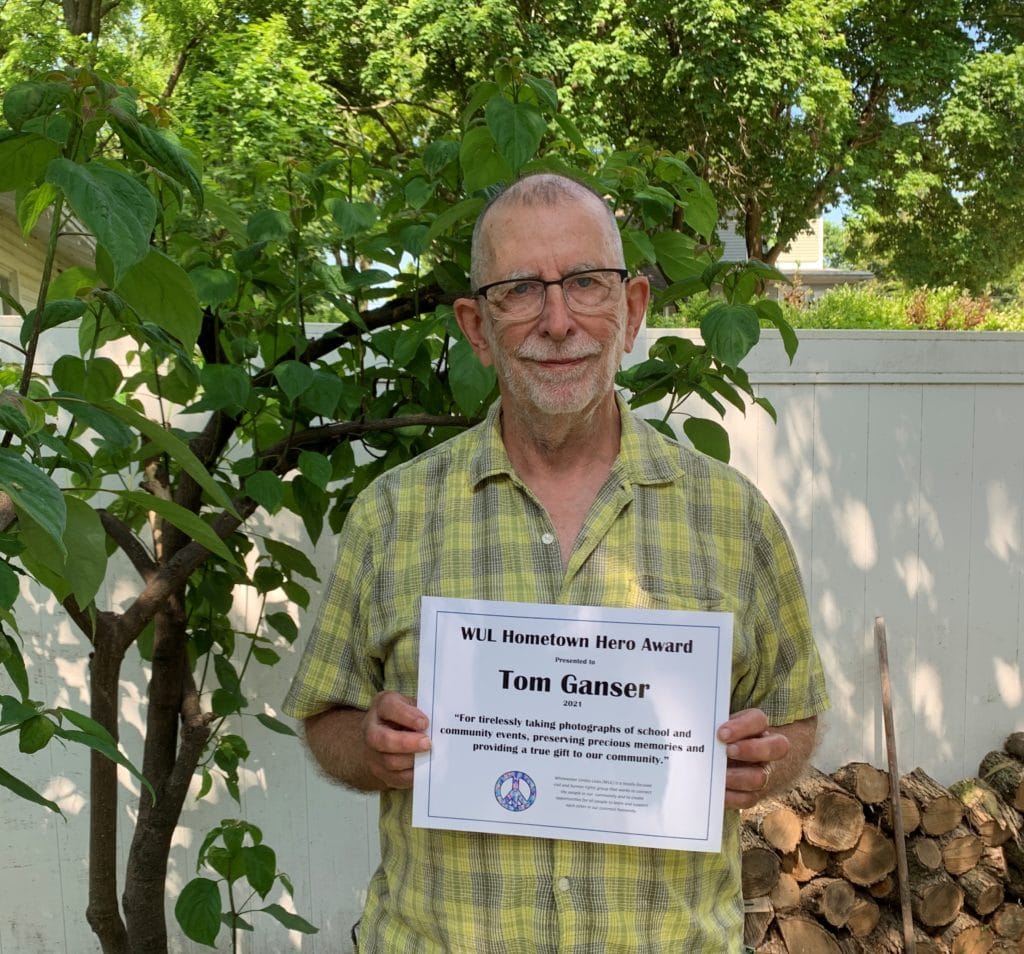
WUL (Whitewater Unites Lives) is a locally-focused civil and human rights group that works to connect the people in our community and to create opportunities for all people to learn and support each other in our common humanity.
Anyone who would like to nominate a local hero of any age should send their nomination, with a short description, to whitewaterunites@gmail.com
Jim Caldwell Inducted into WBA Leaders in Banking Excellence
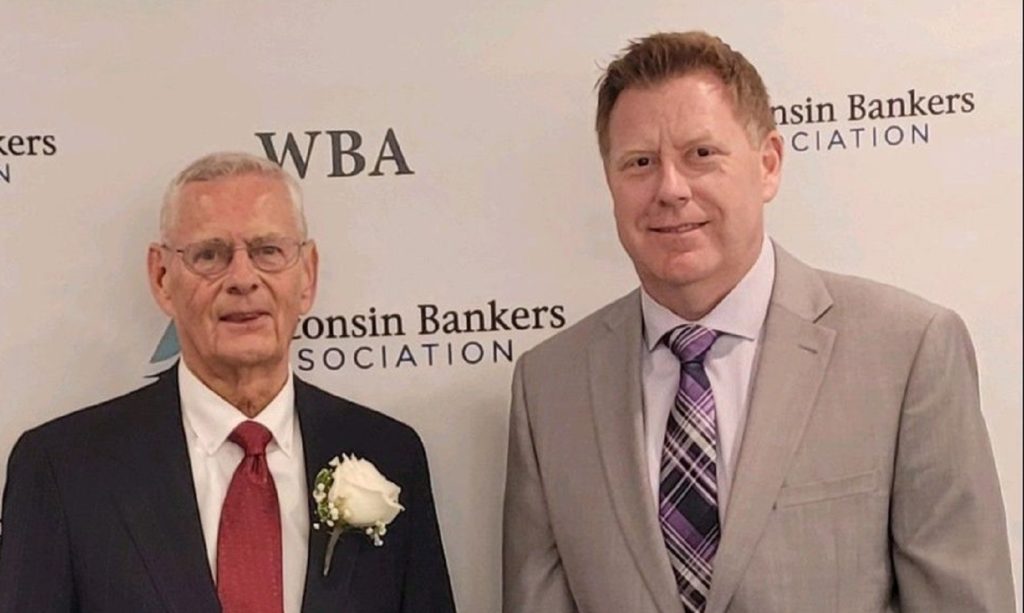
According to an online post by First Citizens State Bank, CEO Jim Caldwell was recently inducted into the very first class of the Wisconsin Bankers Association Leaders in Banking Excellence. Jim was honored as well as 11 other recipients with a ceremony at the WBA in a plaque that will be kept on the newly created wall of excellence at the recently remodeled WBA office in Madison. The wall is set as a centerpiece for those that go to visit the WBA office or attend training seminars in honor of the accomplishments and exceptional bankers throughout Wisconsin’s history.
UW Extended Campus to launch five new online certificates this fall
Certificates offer skills training in high-demand fields: bioinformatics, data science, health care informatics, senior living, and sustainability and well-being
(UW-System submission) UW Extended Campus, in partnership with University of Wisconsin System campuses, will offer five new online certificates aligned with industry needs and high-growth occupations in September 2021. The new programs include graduate-level, semester-based certificates in Applied Bioinformatics, Data Science, Senior Living and Services Leadership, and Sustainability and Well-being; and an undergraduate-level certificate in Health Care Informatics, offered in the UW Flexible Option competency-based format.
All 13 UW System campuses are participating in at least one certificate program. UW Extended Campus, in collaboration with the universities, makes advanced education possible through flexible, online programs that combine the diverse expertise and resources of UW campuses and faculty.
“UW Extended Campus is a flexible, convenient education option for adult learners or anyone who wants to study at their own pace for whatever reason,” said UW System President Tommy Thompson. “These new certificate programs will make additional learning available to more people.”
Certificate requirements vary from four to six courses. It is possible to earn a certificate within one year; however, students may decide to take longer to complete a certificate based on work and life commitments. Like other UW Extended Campus programs, students pay the same tuition whether they live in Wisconsin or out of state.
The certificates provide skills training for professionals seeking career advancement in health care, technology, and business occupations. According to the U.S. Bureau of Labor Statistics, employment of medical and health services managers is projected to grow 32 percent from 2019 to 2029, and employment of computer and information research scientists is projected to grow 15 percent from 2019 to 2029, much faster than the average for all occupations. Coursework completed in the certificate programs offer an optional pathway to bachelor’s and master’s degrees offered through UW Extended Campus.
“Programs managed by UW Extended Campus are designed for working adults and professionally oriented students,” said Aaron Brower, executive director of UW Extended Campus. “What I love about these programs is that they meet students where they are—they engage students in learning that fully connects their lives to the world.”
The new certificates join a growing catalog of flexible, online degree and certificate programs designed for adult learners offered in collaboration with UW Extended Campus and UW System campus partners. Students with a variety of work, education, and life experience have found success in UW Extended Campus programs.
Prospective students seeking more information about the UW Extended Campus certificates are encouraged to visit the website, uwex.wisconsin.edu, call 1-608-262-2011 or 1-877-895-3276, or email learn@uwex.edu.
About UW Extended Campus
The University of Wisconsin System is one of the largest and most widely respected public higher education systems in the country. UW Extended Campus partners with all UW System campuses to offer online degrees and certificates, as well as continuing education and lifelong learning opportunities. Through UW Extended Campus, people of Wisconsin and beyond can access university resources and engage in online learning, wherever they live and work—fulfilling the promise of the “Wisconsin Idea.”
The University of Wisconsin System serves approximately 165,000 students. Awarding nearly 37,000 degrees annually, the UW System is Wisconsin’s talent pipeline, putting graduates in position to increase their earning power, contribute to their communities, and make Wisconsin a better place to live. Nearly 90 percent of in-state UW System graduates stay in Wisconsin five years after earning a degree. The UW System provides a 23:1 return on state investment. UW System institutions also contribute to the richness of Wisconsin’s culture and economy with groundbreaking research, new companies and patents, and boundless creative intellectual energy.
Ferradermis Competing for Unofficial State Championship
Article and Photos Submitted by Laura Masbruch
Whitewater High School Robotics Advisor and Banner Volunteer
lmasbruch@wwusd.org
Ferradermis Captains Winning Alliance on Day One of Lakeshore Competitions, will Return on July 10 to Compete for Unofficial State Championship
For the first time since March of 2020, Wisconsin FIRST Robotics Competition robots were able to get wheels on carpet for a real, live competition with 12 teams at the Lakeshore Robotics Education Center in Manitowoc on Saturday, June 19. Ferradermis made a strong 6-0 start on the day behind drivers Elijah Grall and Reilly Aschenbrener, before a mechanical problem forced them to miss a match, and they ended the qualifications part of the day at 6-2. This left Ferradermis ranked #3.
After #1 Paradigm Shift selected #2 TC Robotics as their first alliance partner for the elimination rounds, Ferradermis moved up to become the #2 Alliance Captain. Competition Logistics/Scouting Lead Shane Kinson represented the team on the field for alliance selections and invited Team 8002 The Knack from Lake Country School and Team 5903 Thorbots from Westby High School to join our alliance.
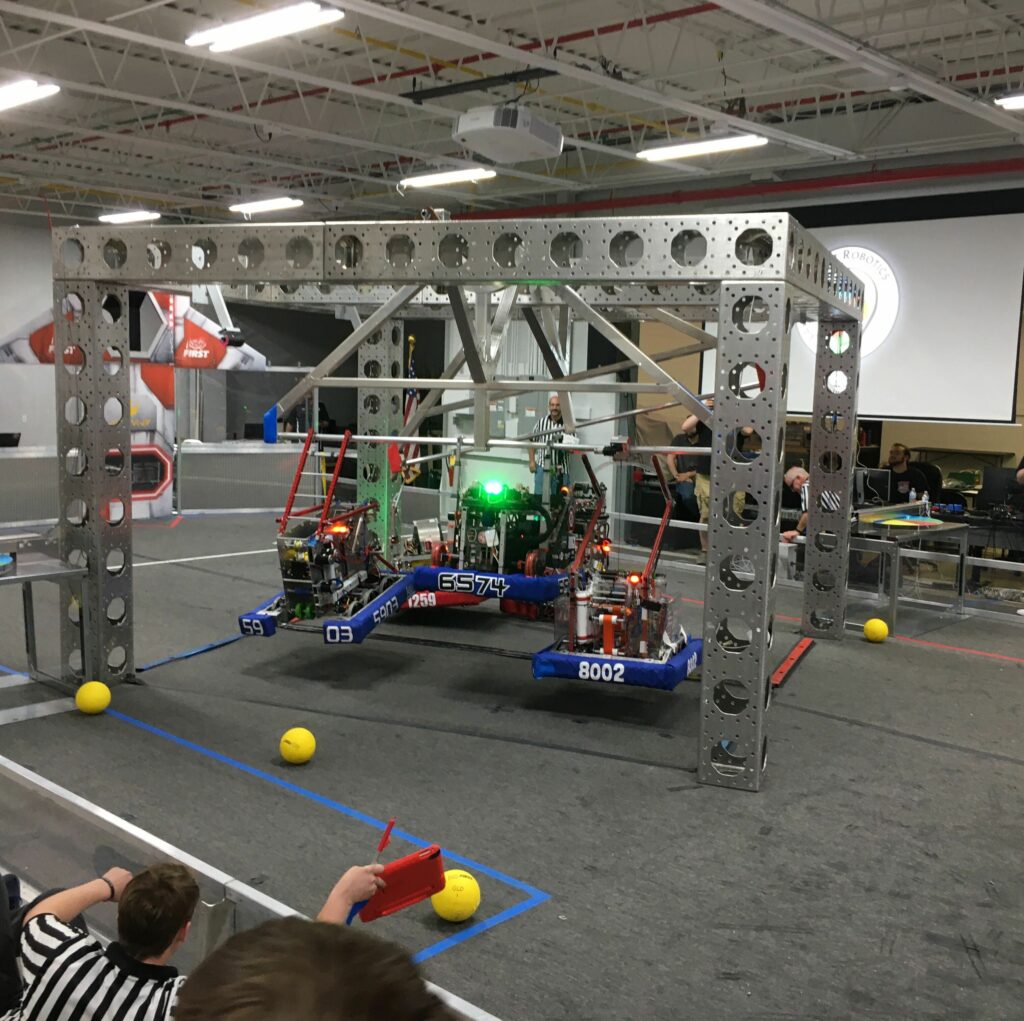
Ferradermis’ alliance advanced through the best of three semifinals in two matches, and then, in a wild best of three finals, the Ferradermis-led alliance topped the alliance led by Team 1259 Paradigm Shift from Pewaukee High School by finishing the tiebreaker match with a triple climb.
Throughout the day, the robot was supported by Technician Lauren Rollette, Head Programmer Jazmin Cederberg, Pit Captain Andrew Rollette, Human Player Anderson Waelchli, and Scouts Brandon Mueller and Sterling Truesdale. For four of these students, this was their first opportunity to attend a live event.
The Lakeshore Robotics Center will host three additional days of competition this month, with the winning alliance and captain of the second place alliance from each day returning with Ferradermis to compete for the Unofficial Wisconsin Championship on July 10. The multi-day system with a cap on the number of participants from each team and no more than 14 teams per day was created to give all Wisconsin teams a chance to compete in-person while still adhering to COVID protocols.
Earlier this season, Ferradermis was named a Skills Competition Finalist for finishing second in their competition group of 30 international teams in the Infinite Recharge at Home Skills Challenge.
There are no spectators allowed in Manitowoc, but if you would like to take in a local competition in person, Ferradermis will be competing at the Laser Lights off-season event at Kettle Moraine High School on Saturday, July 24. Students interested in joining the team may travel with the team to this event if they complete a permission slip in advance.
Ferradermis will host a week-long boot camp beginning on July 31 for any students entering grades 9-12 who are interested in joining the team. Students of all skill levels are welcome; students will learn everything they need to know as they work with the team. For more information, or if you would like to register, please email lmasbruch@wwusd.org or ferradermis@gmail.com

